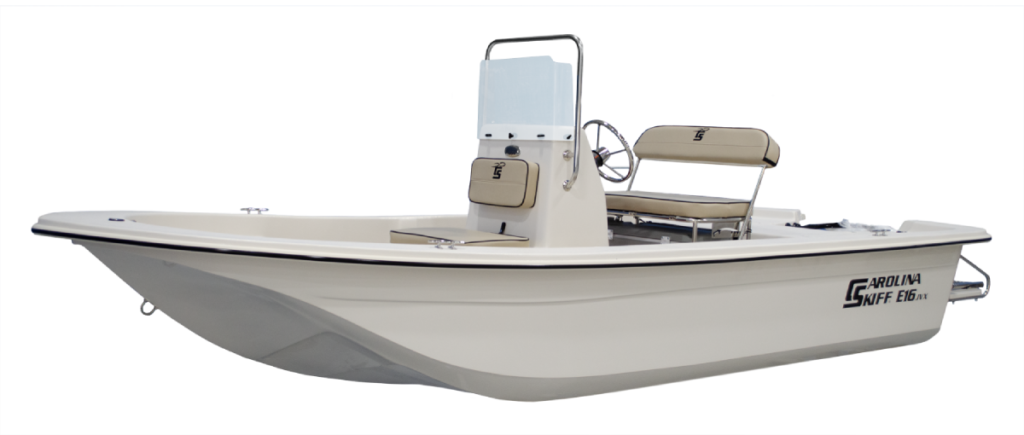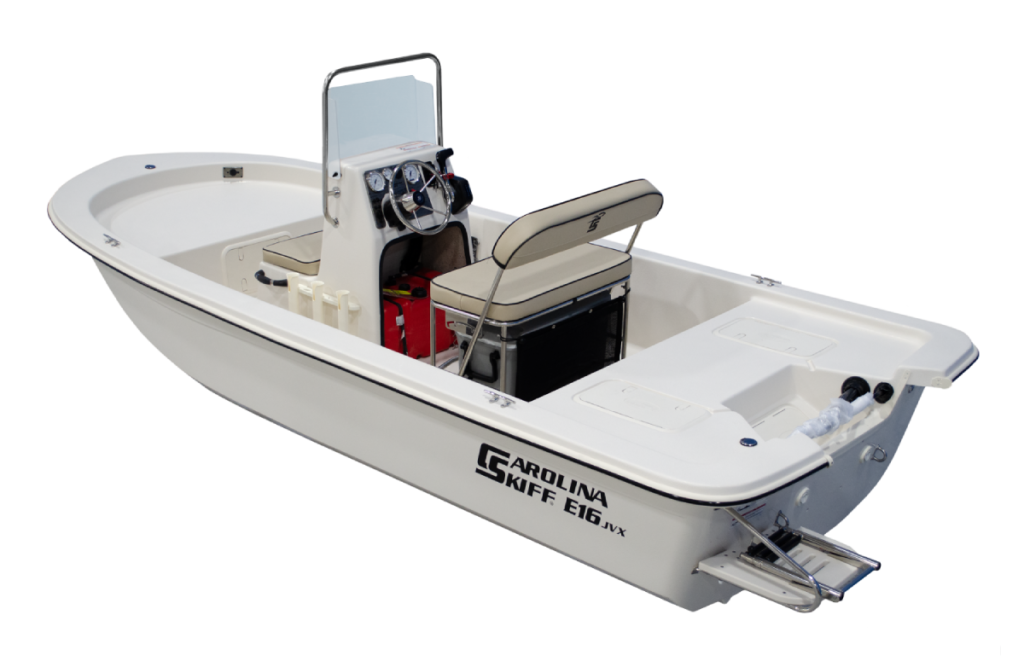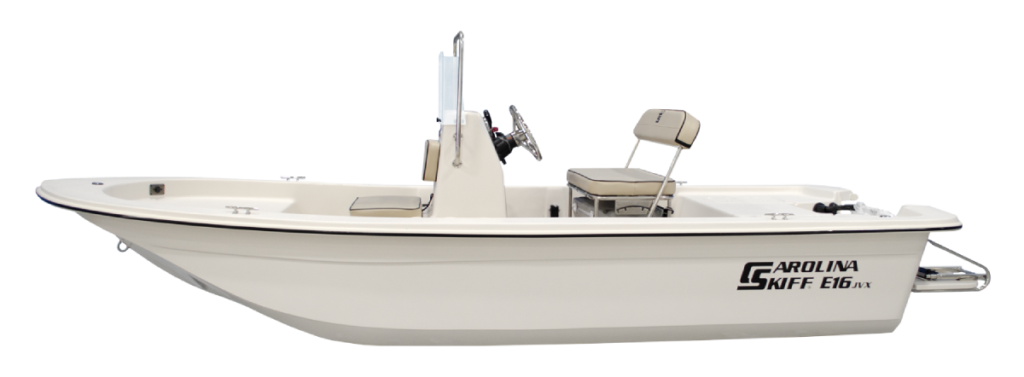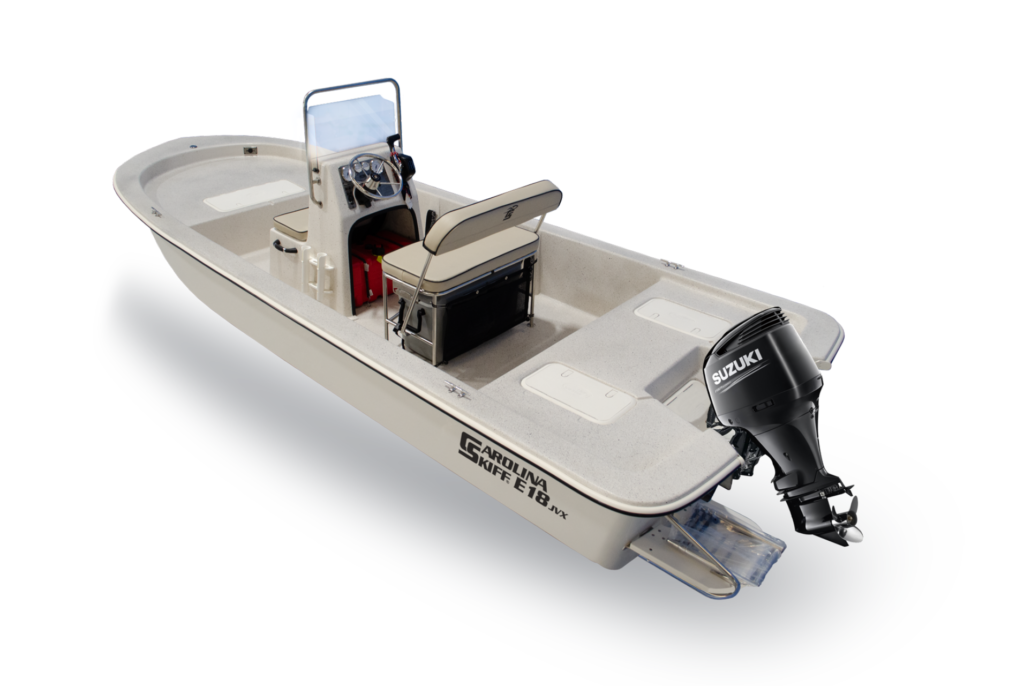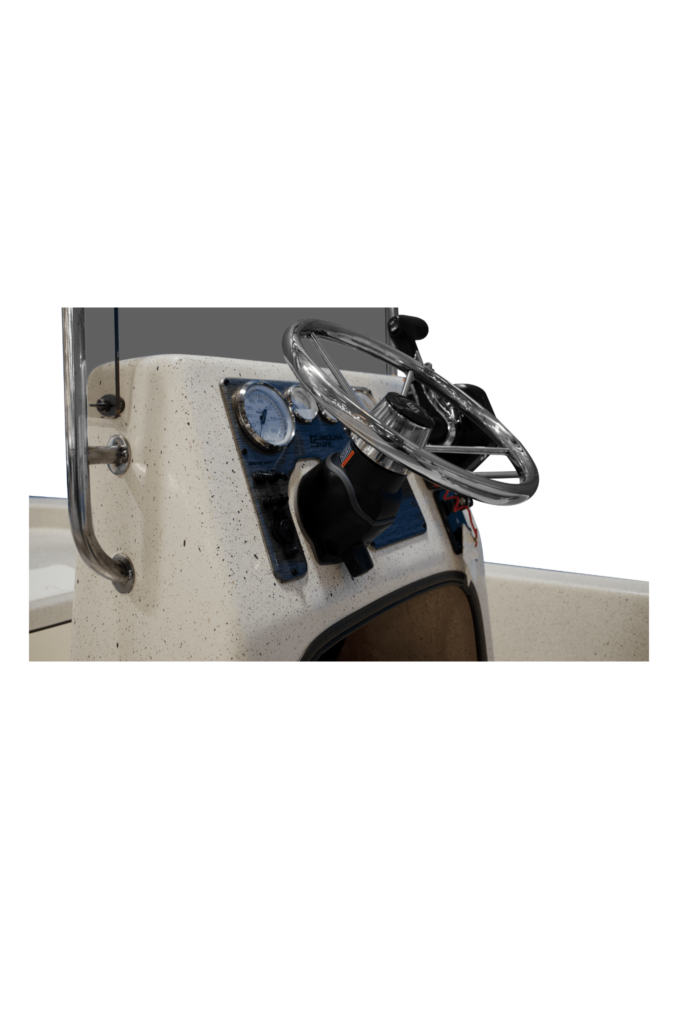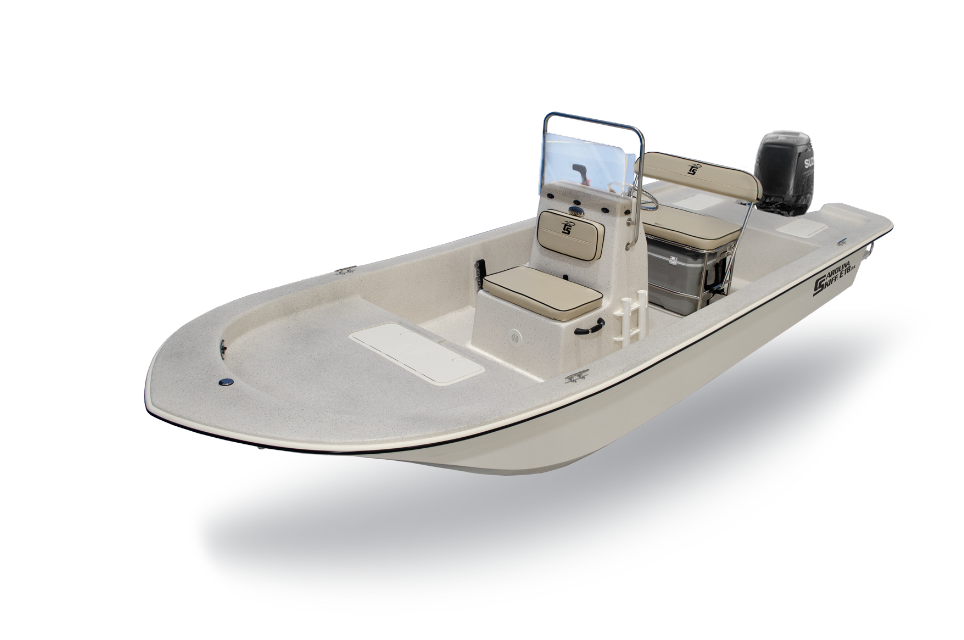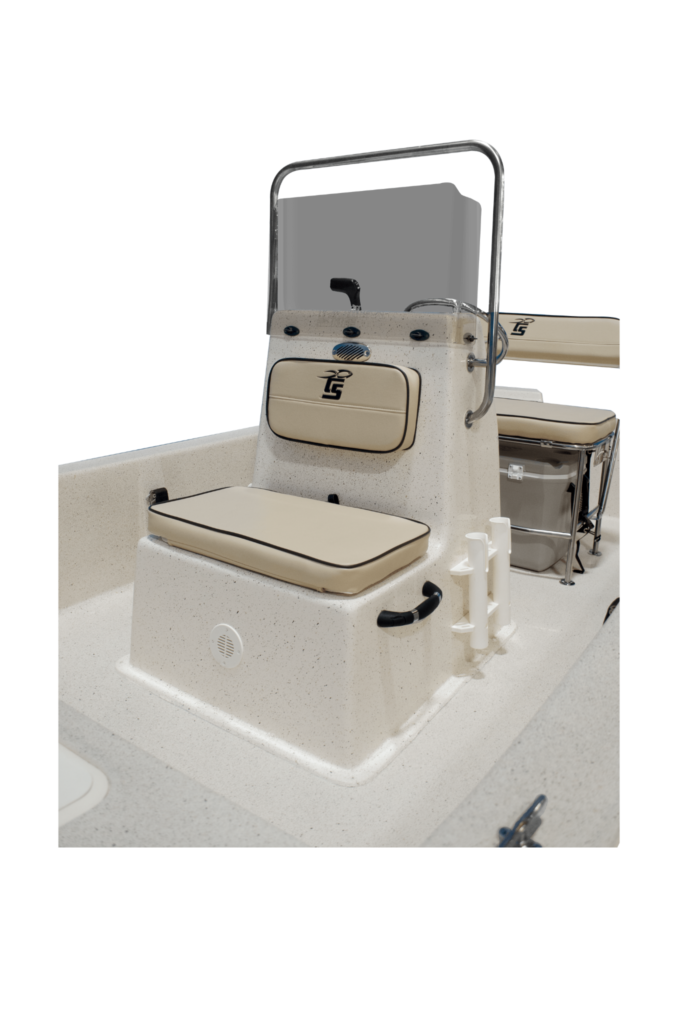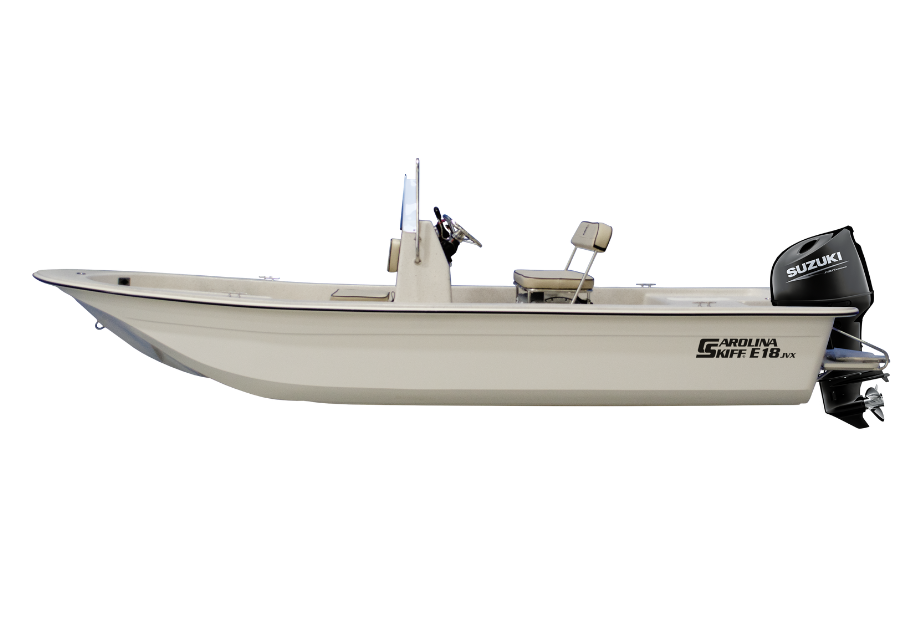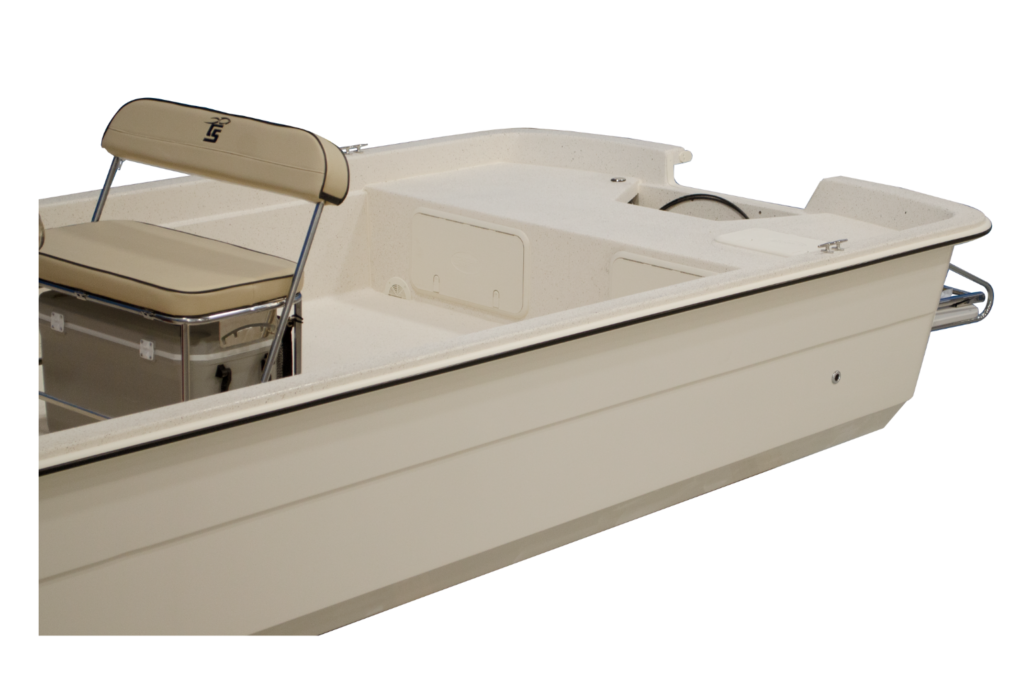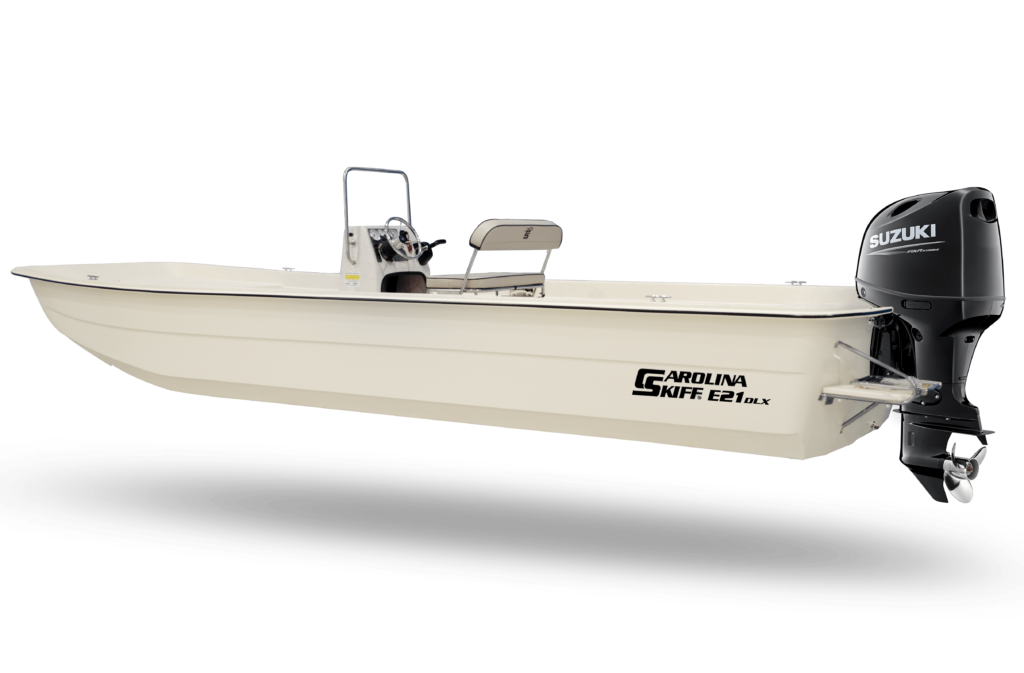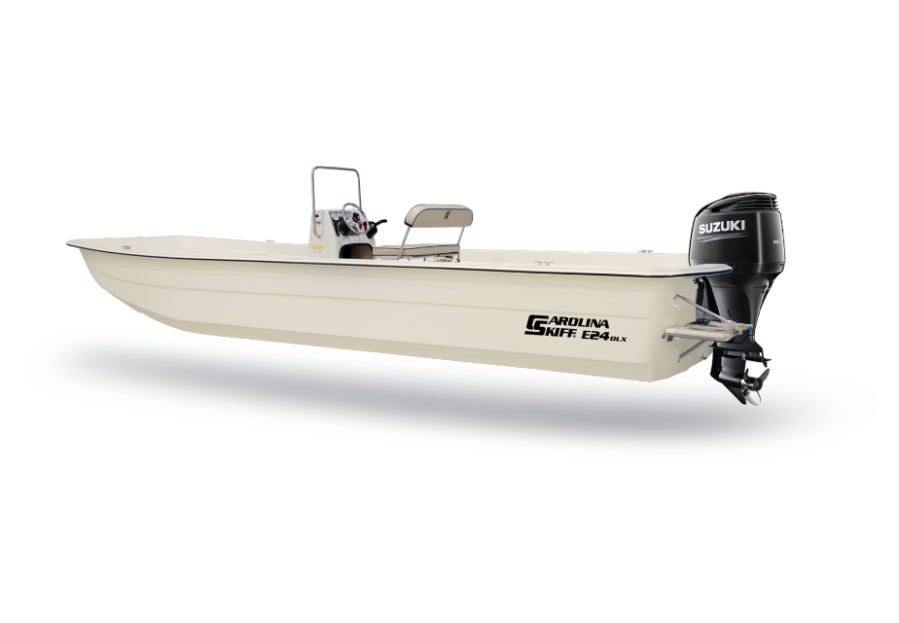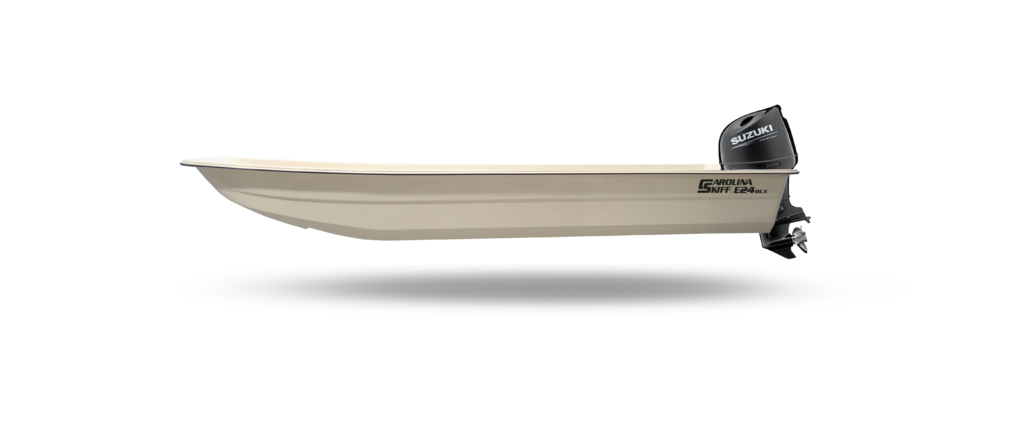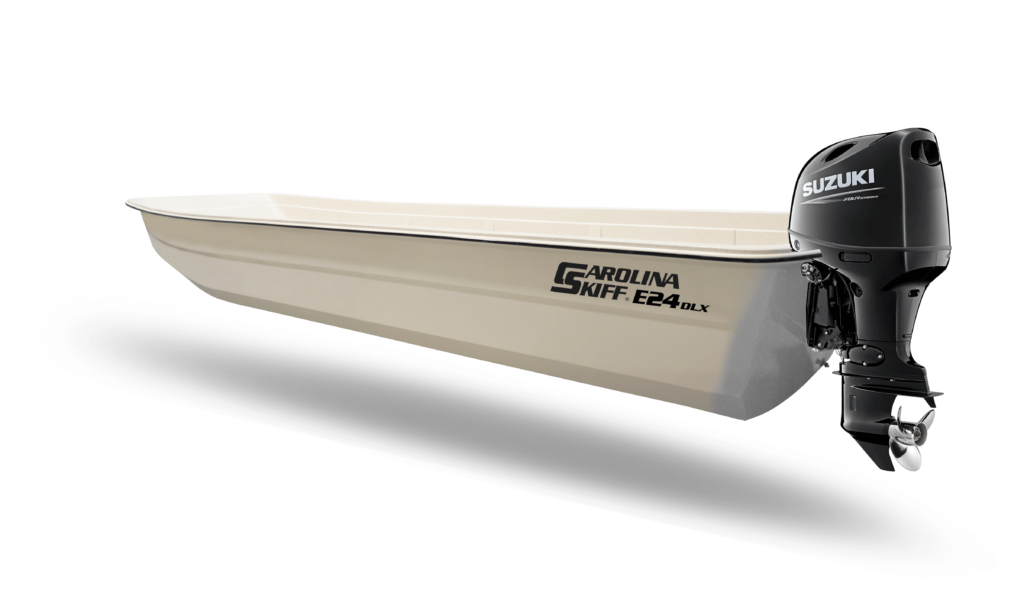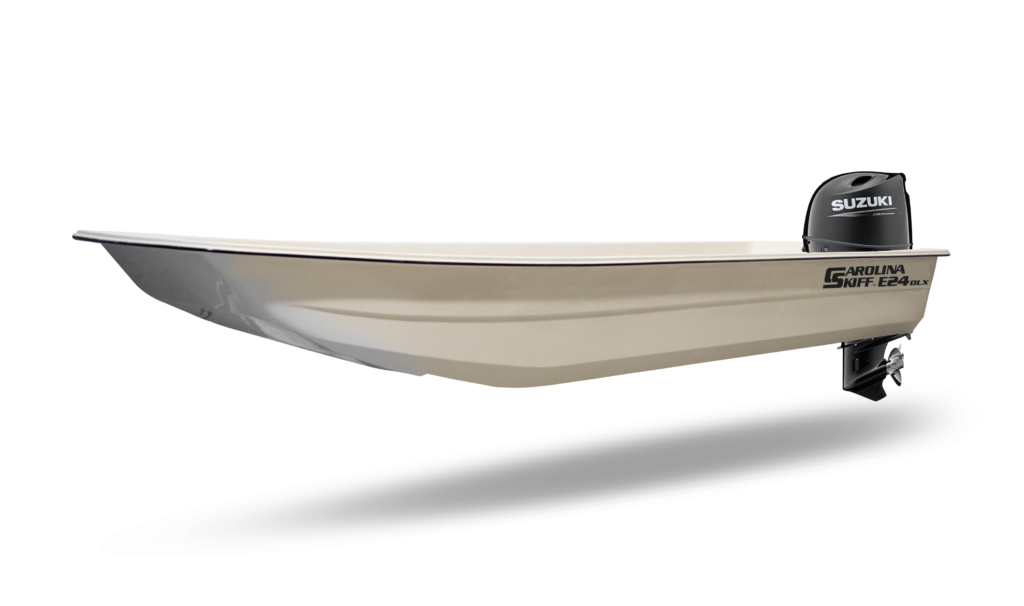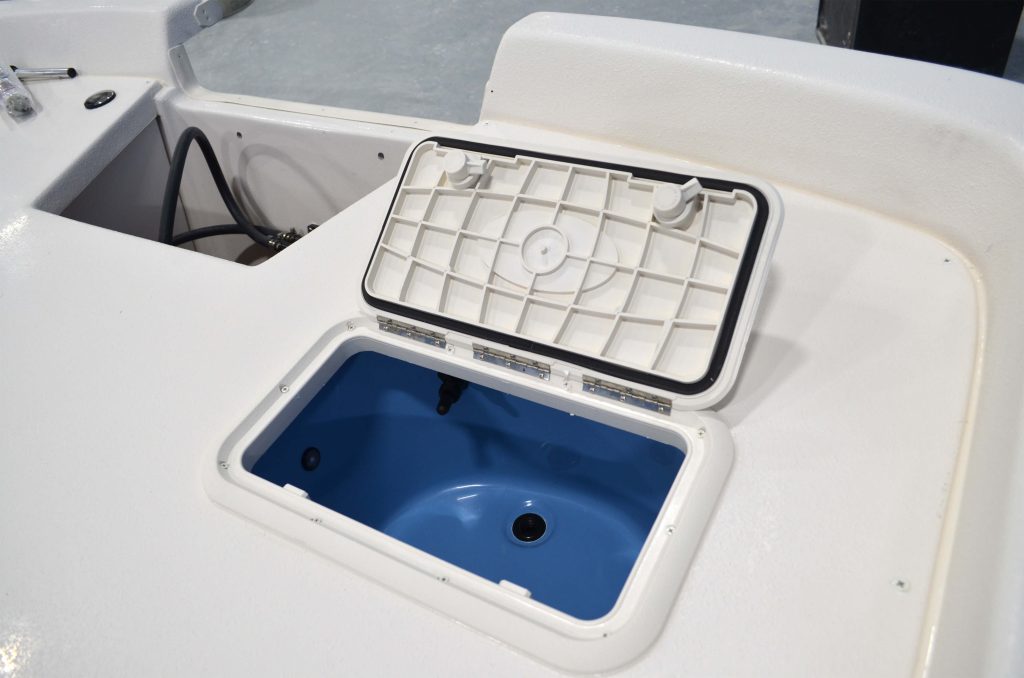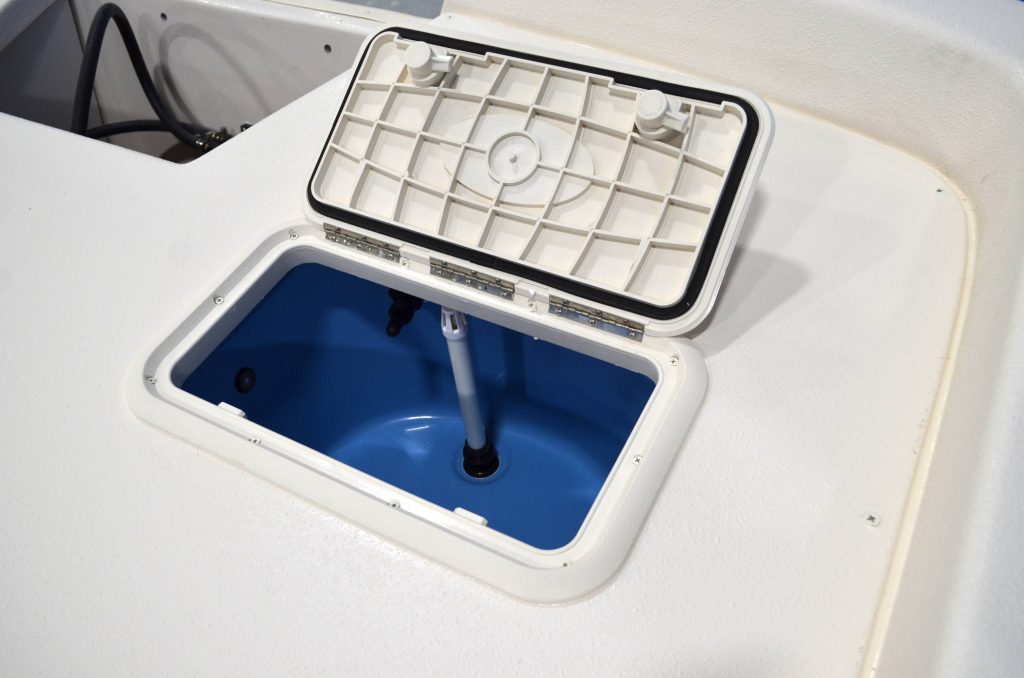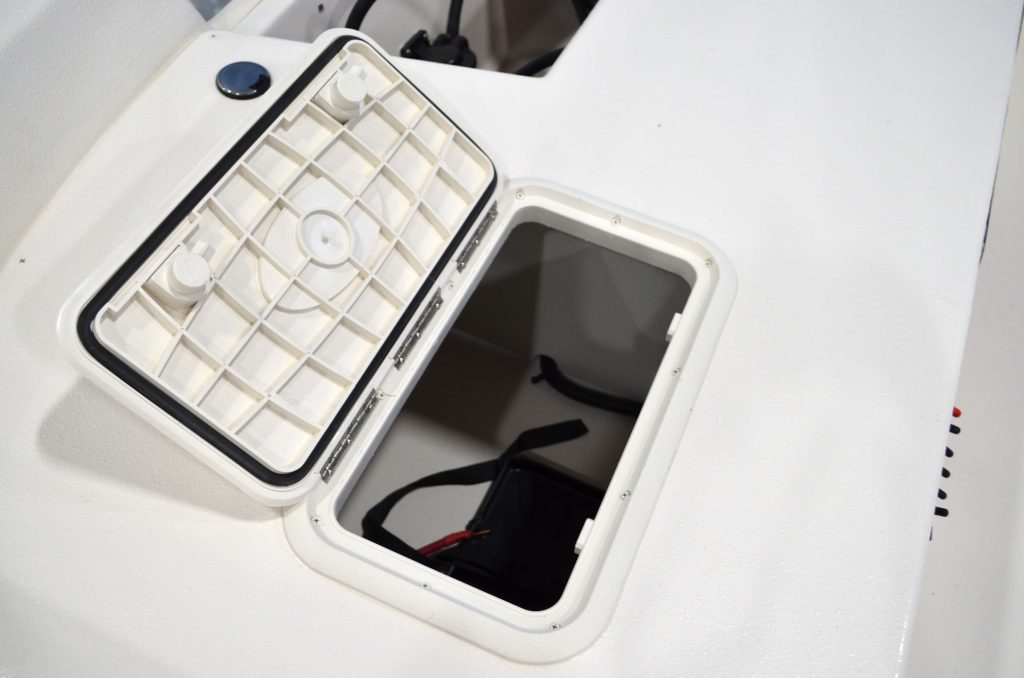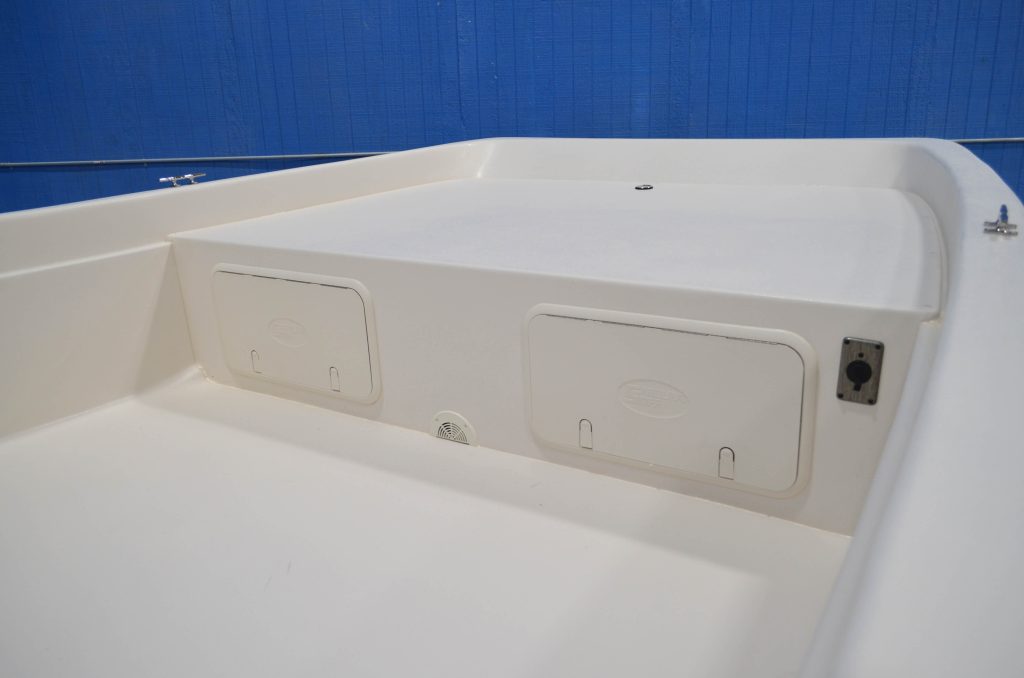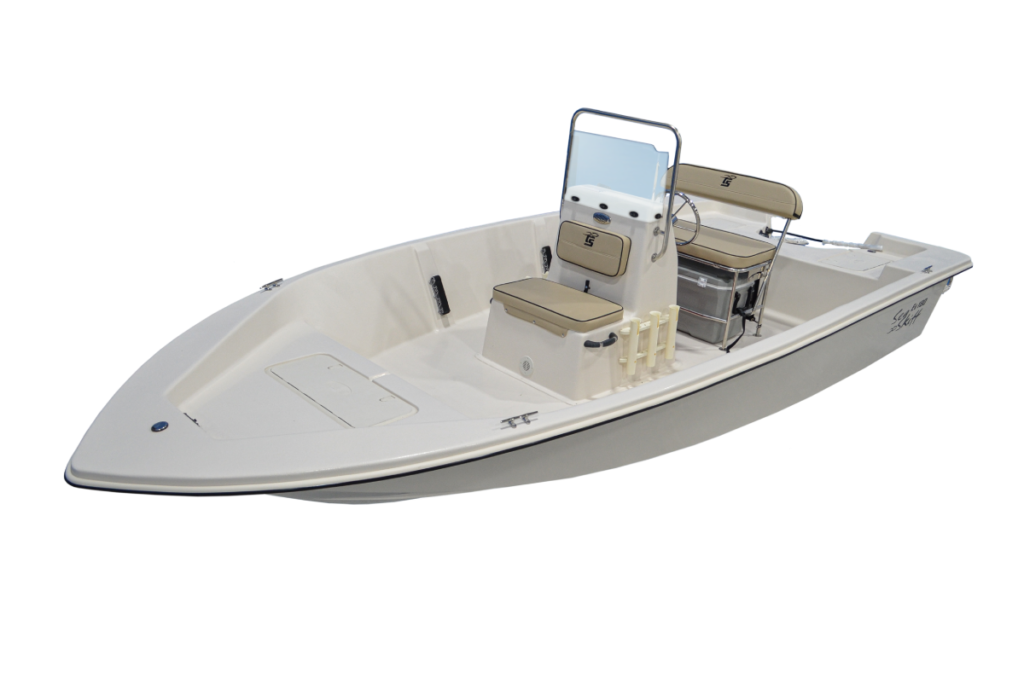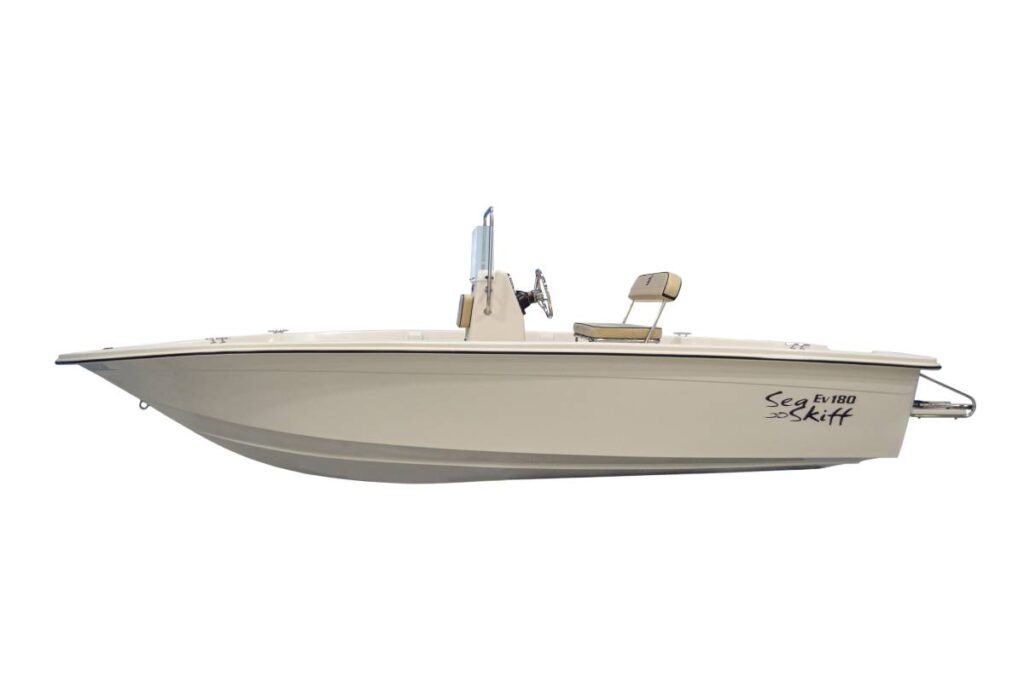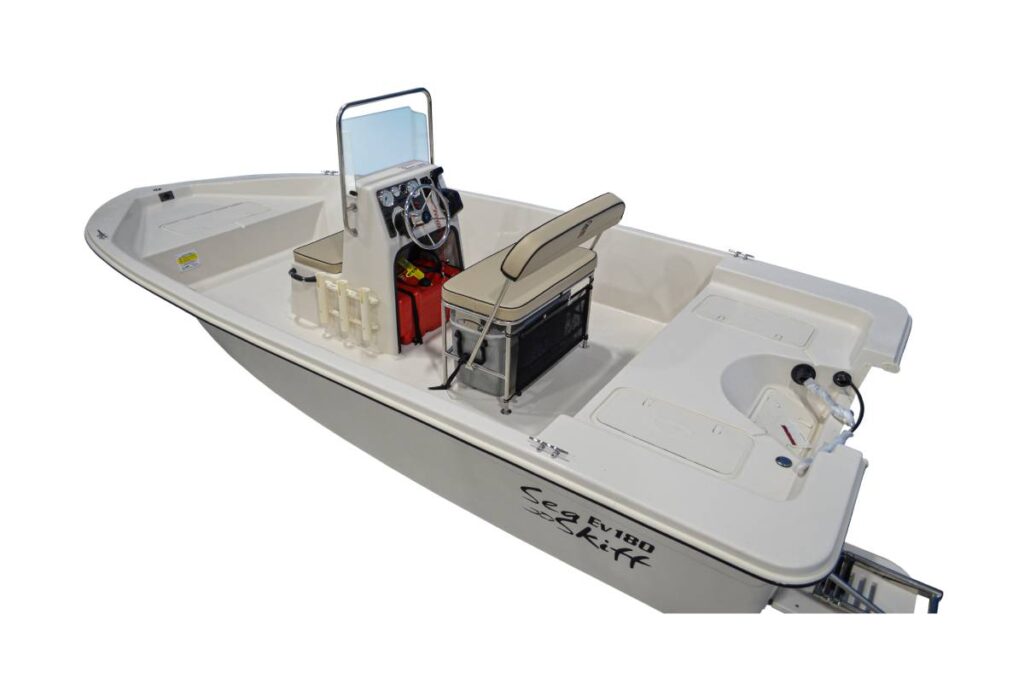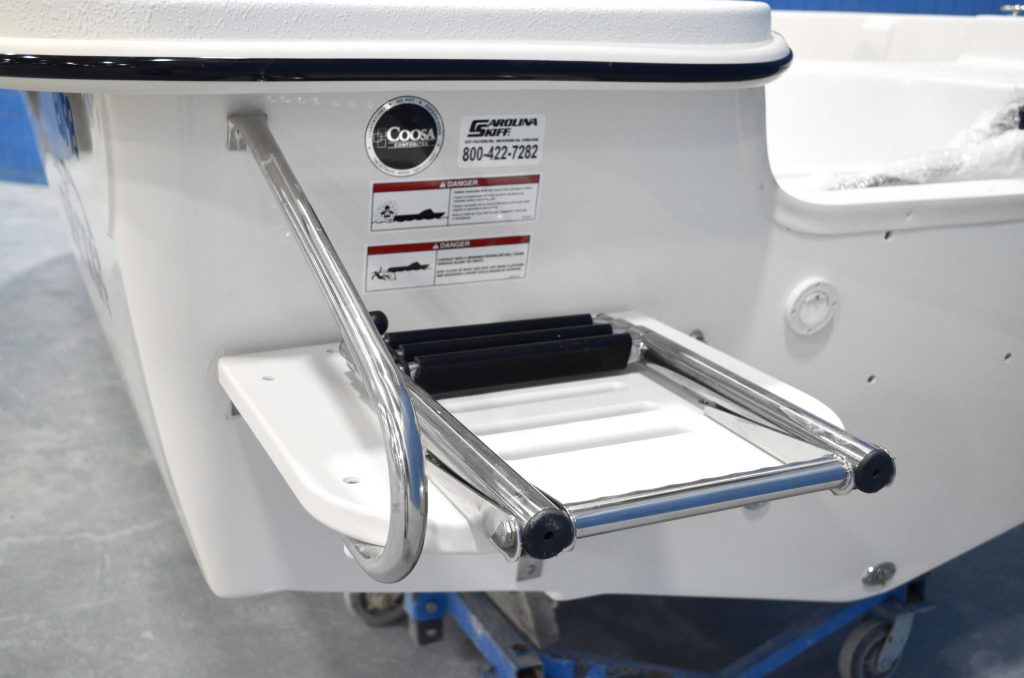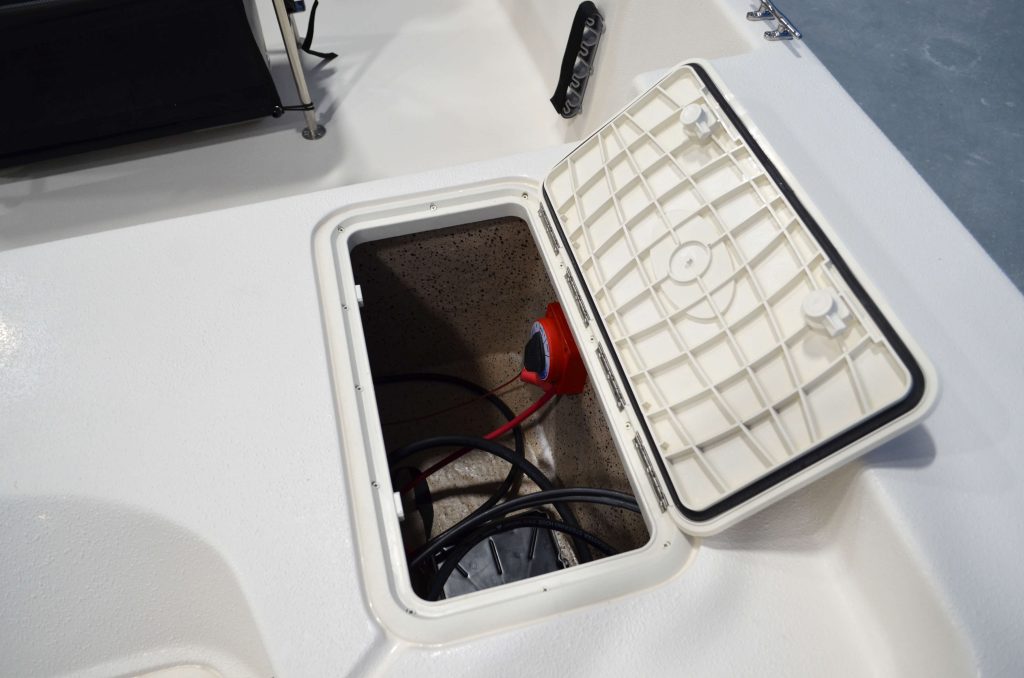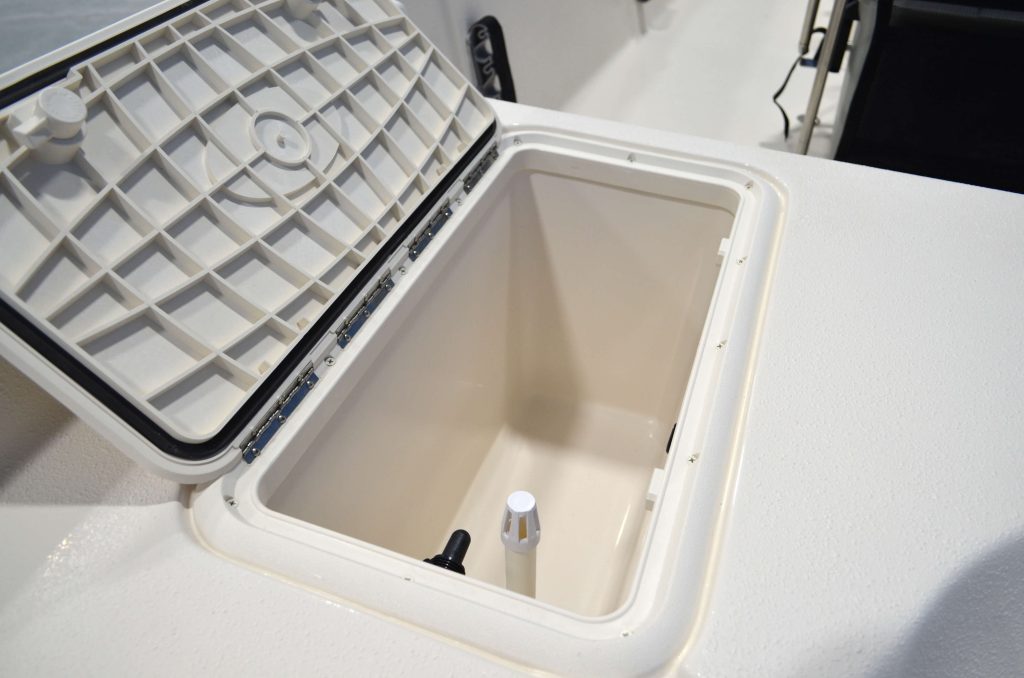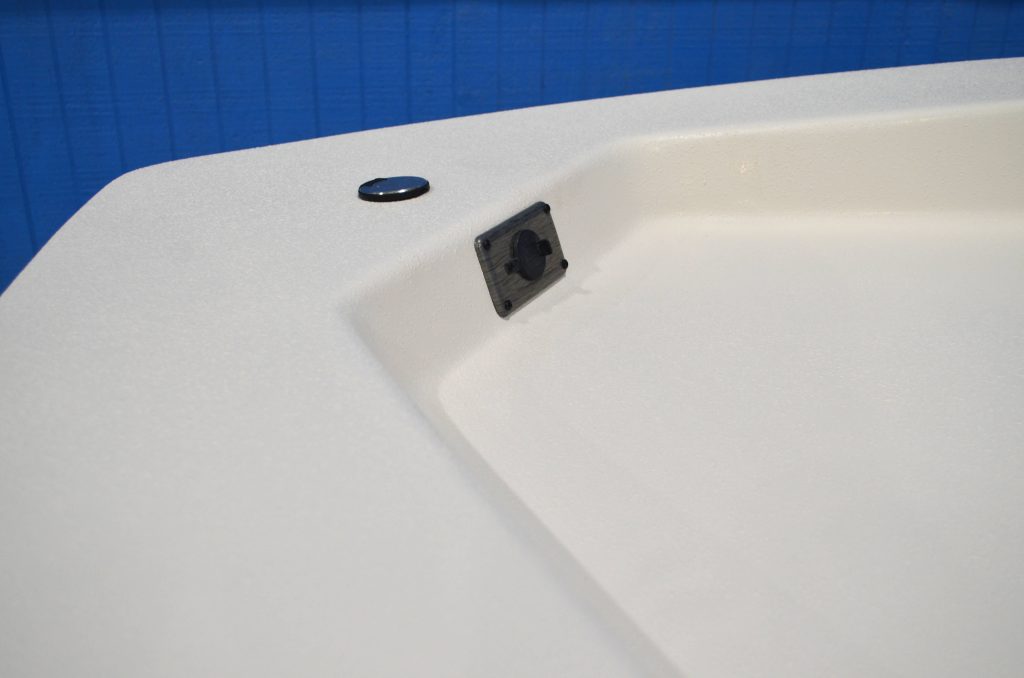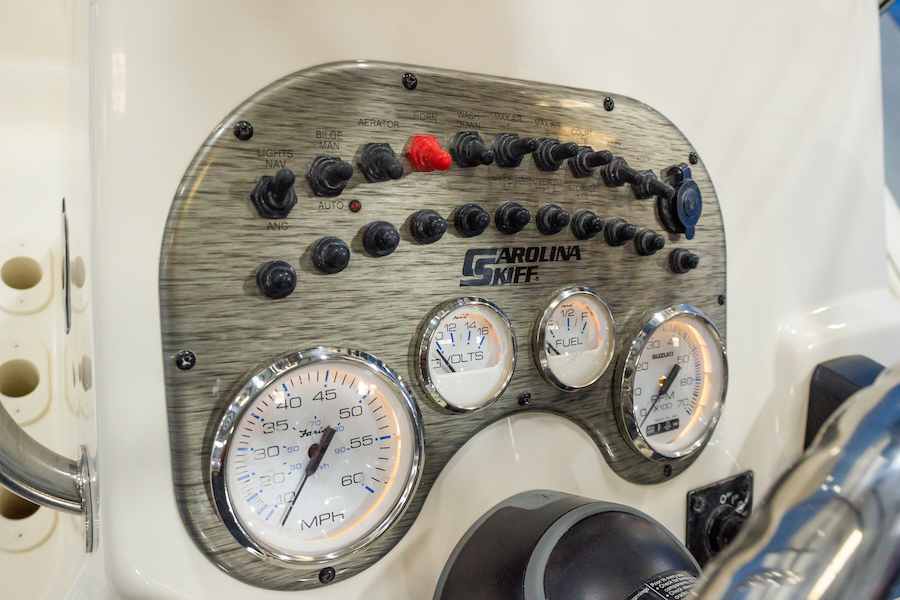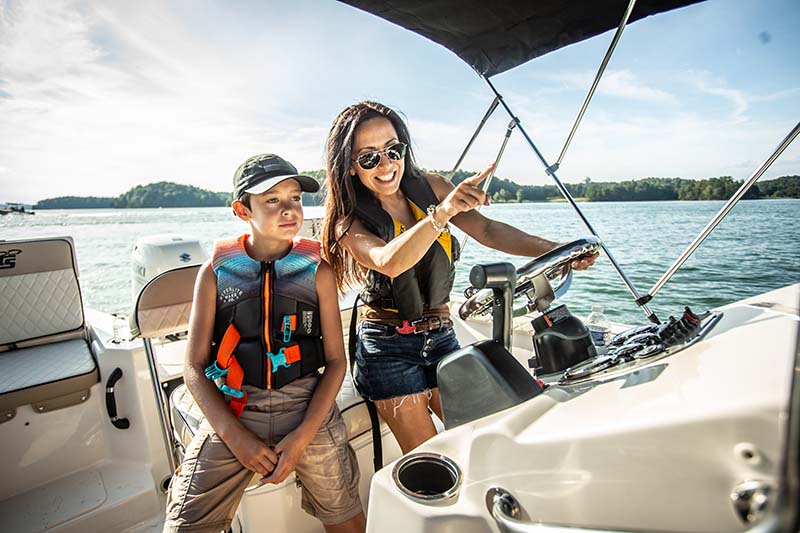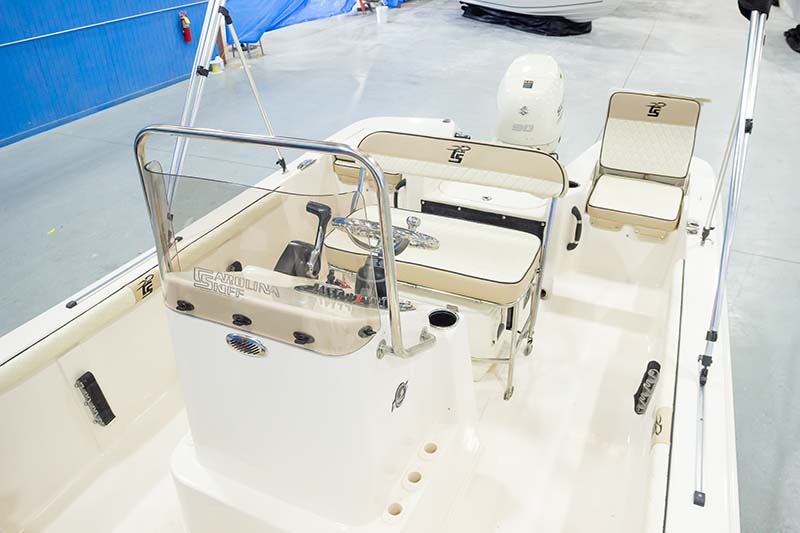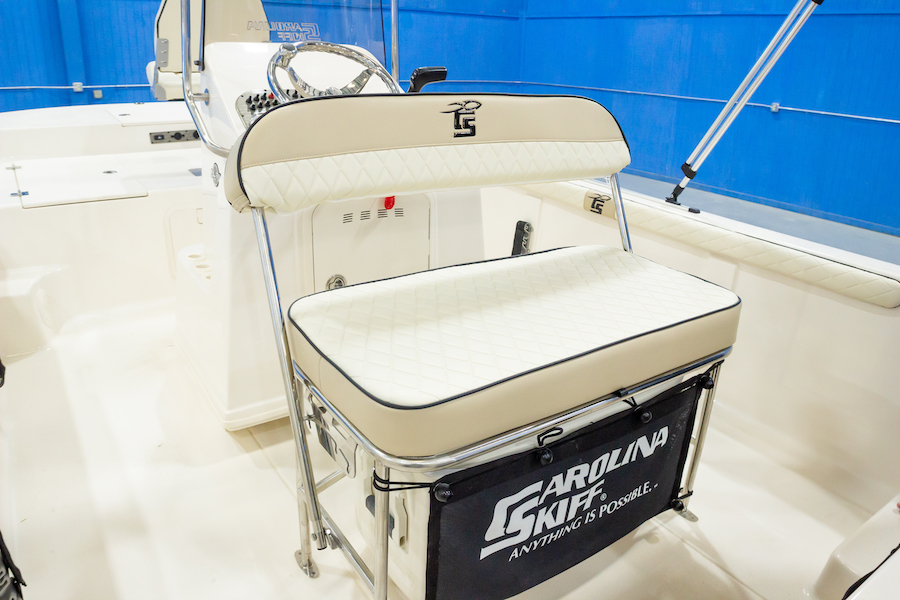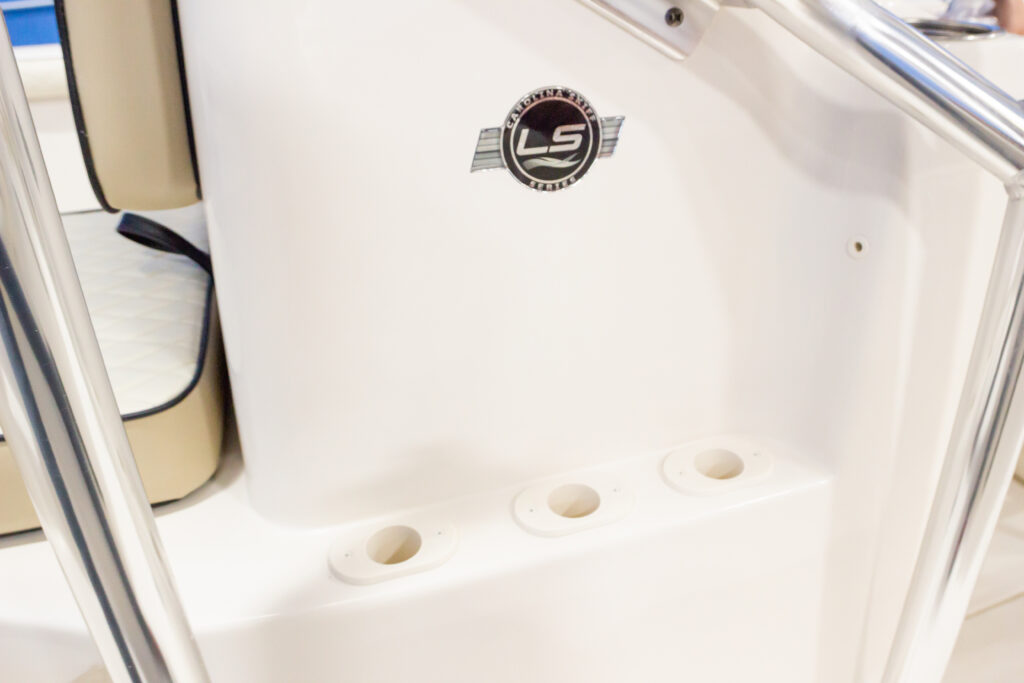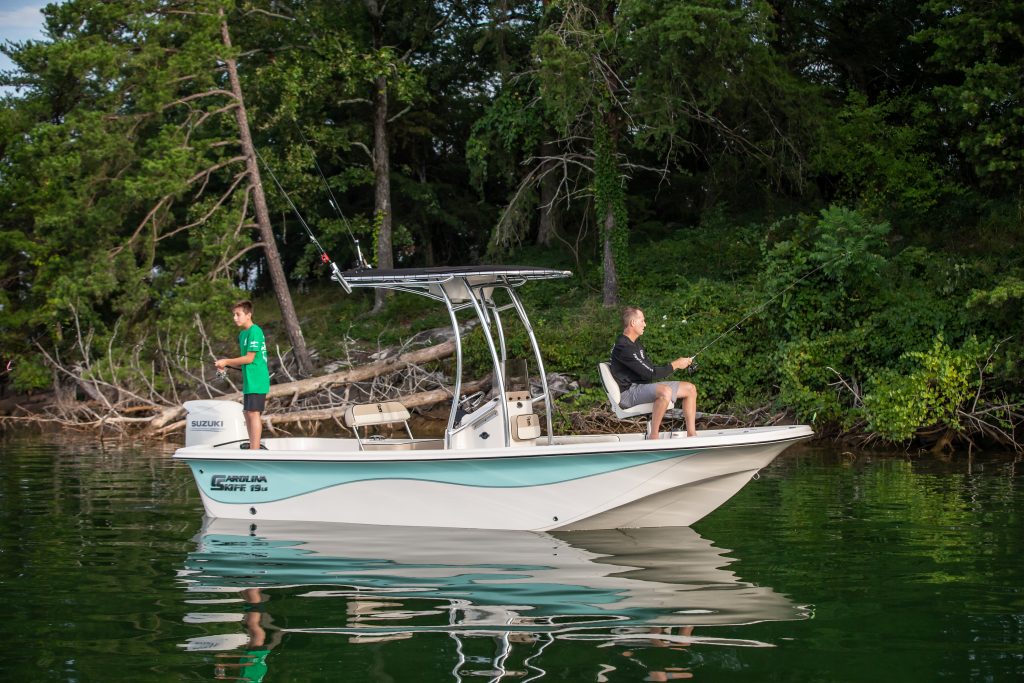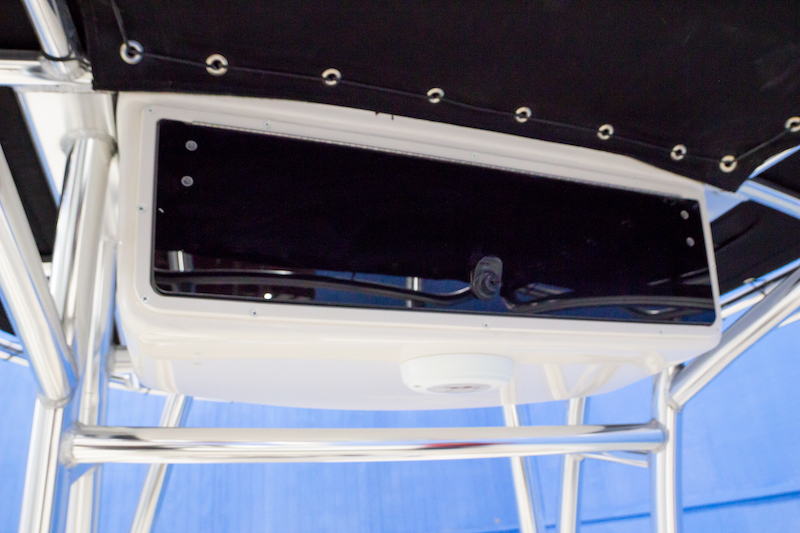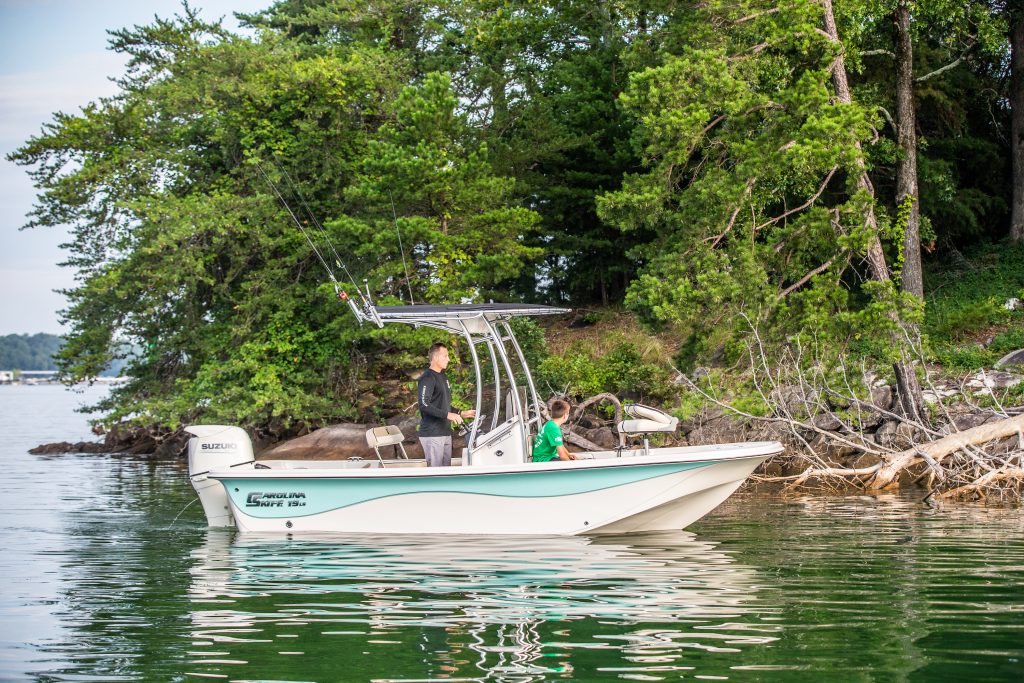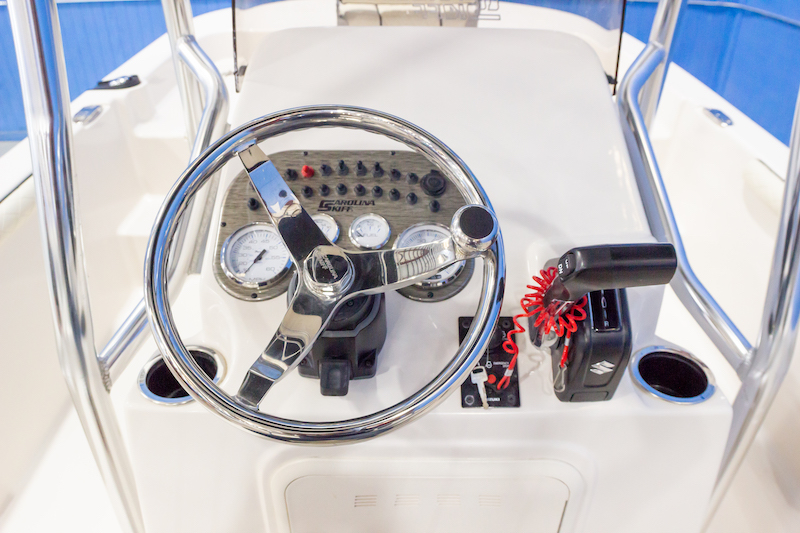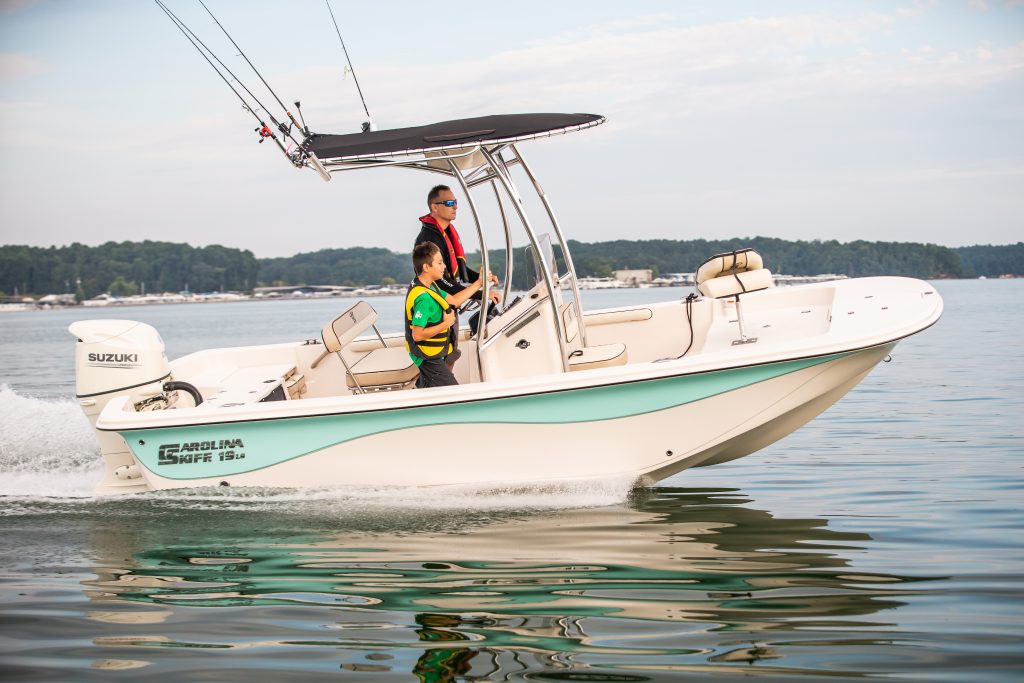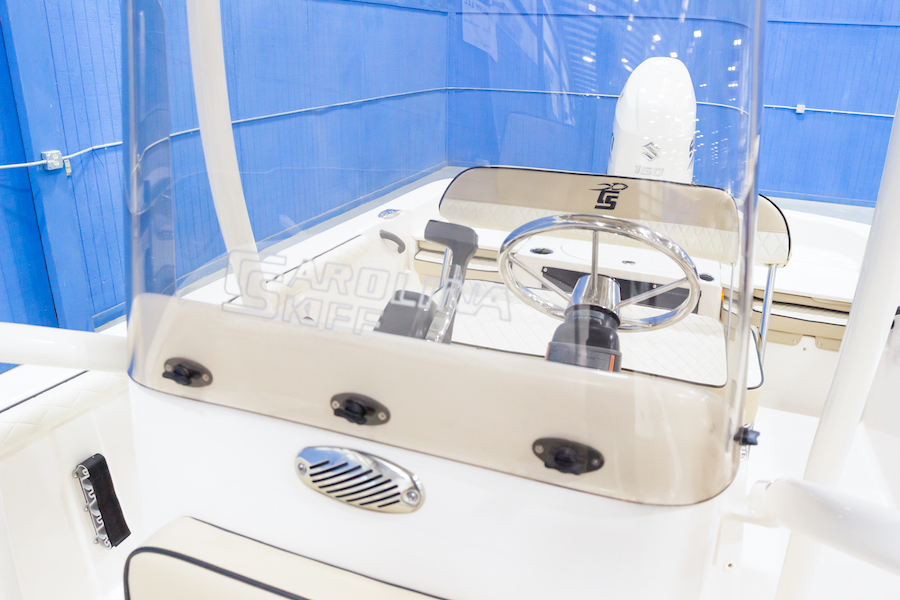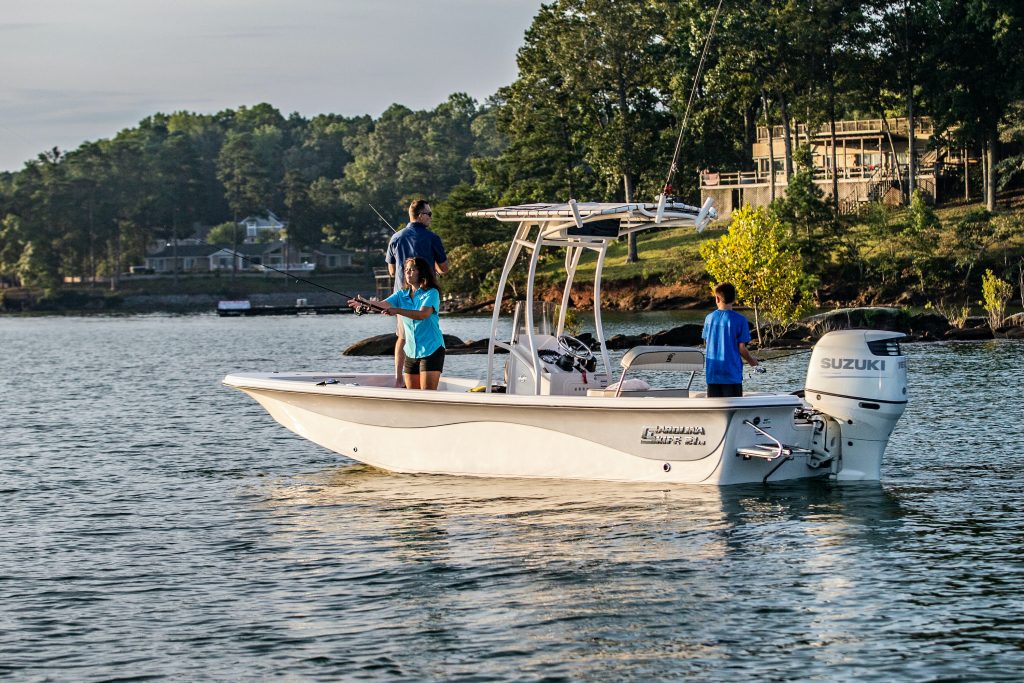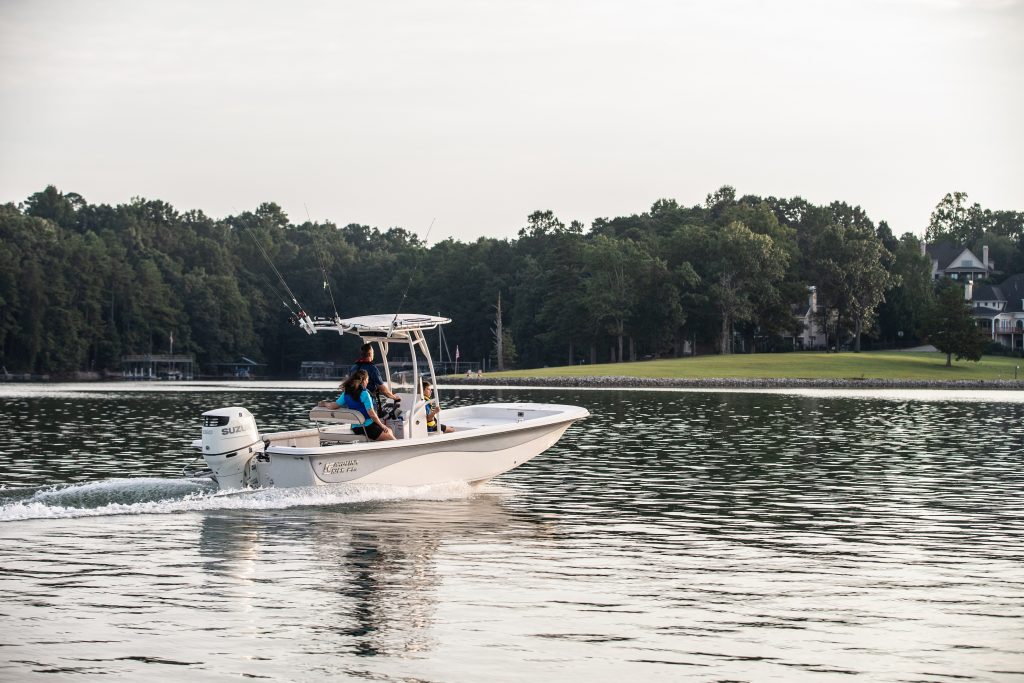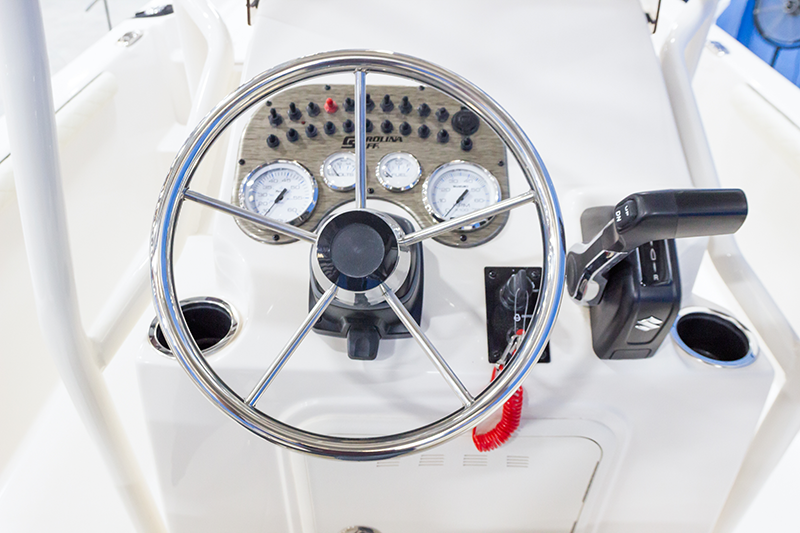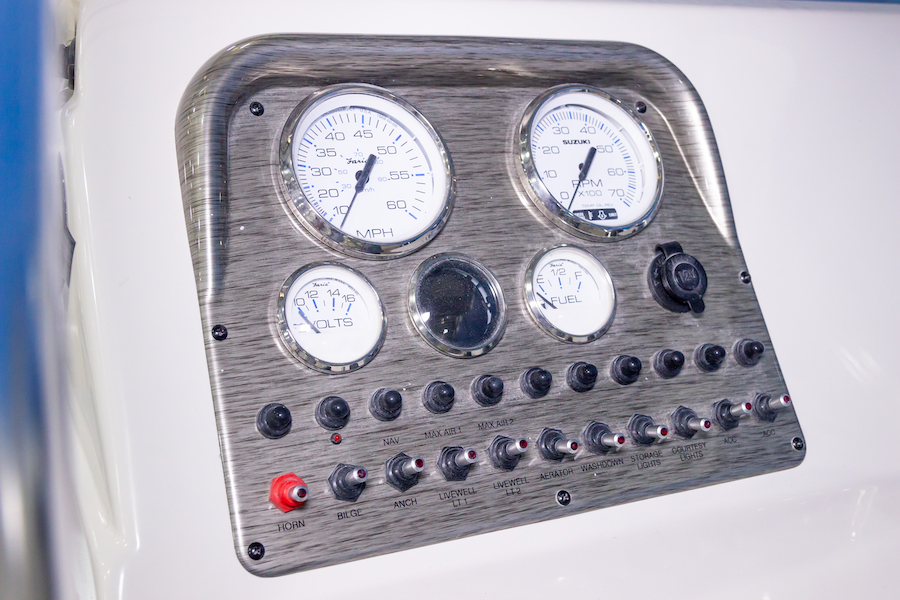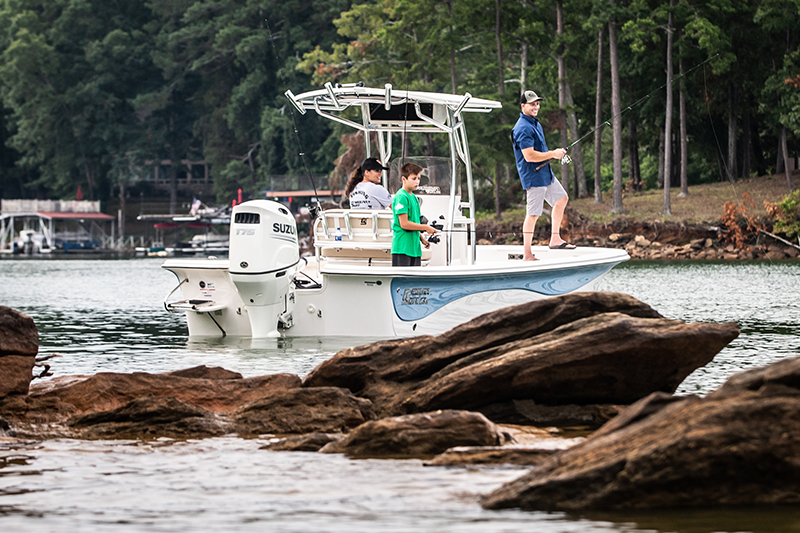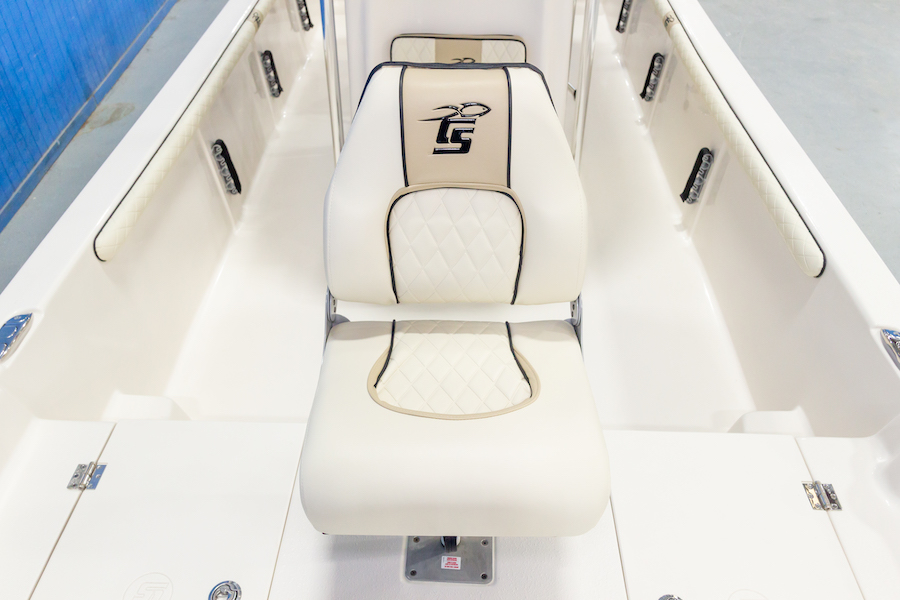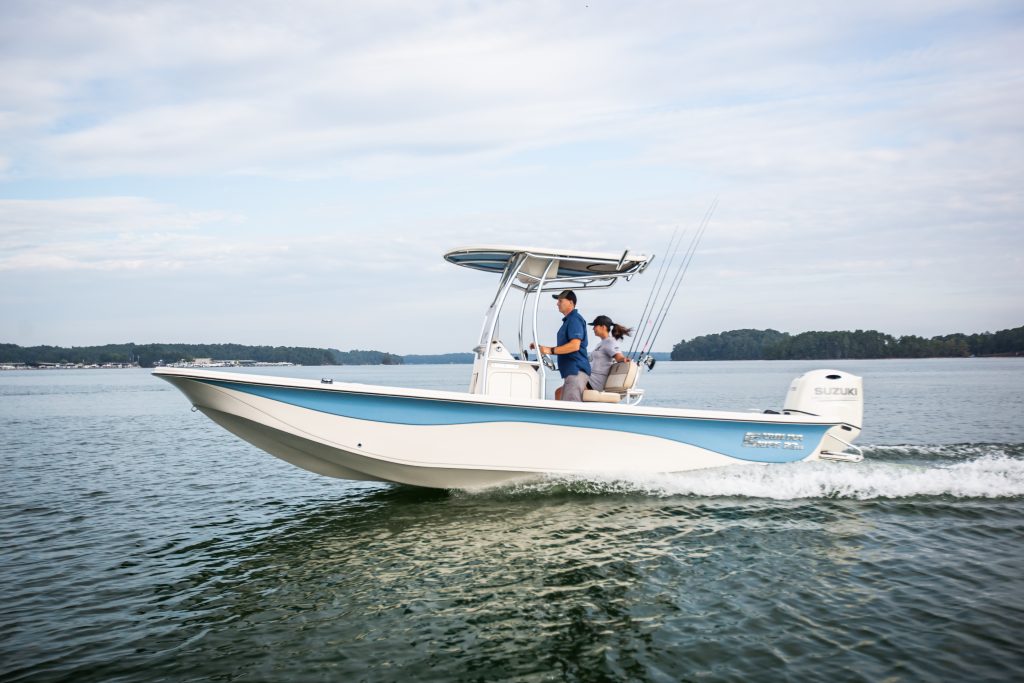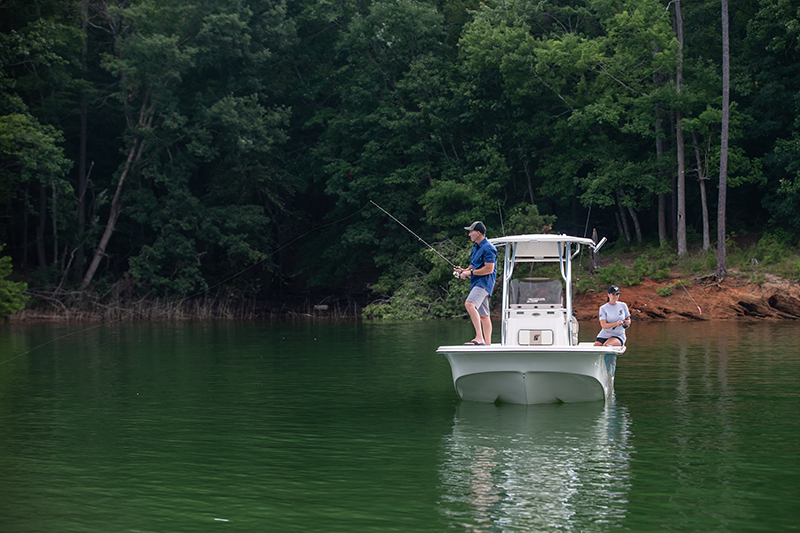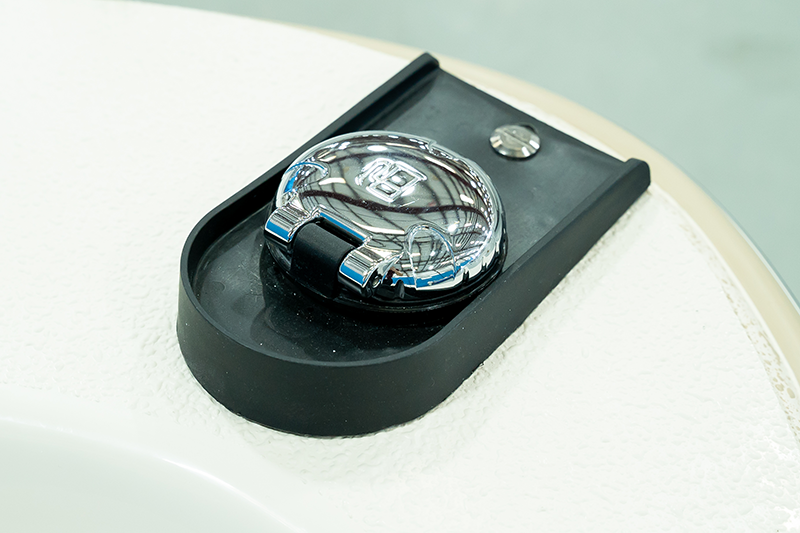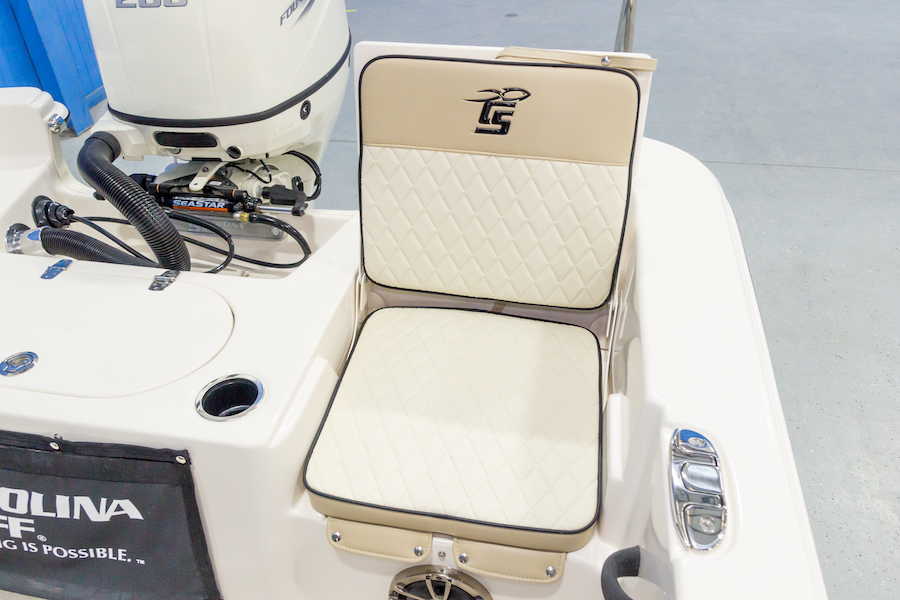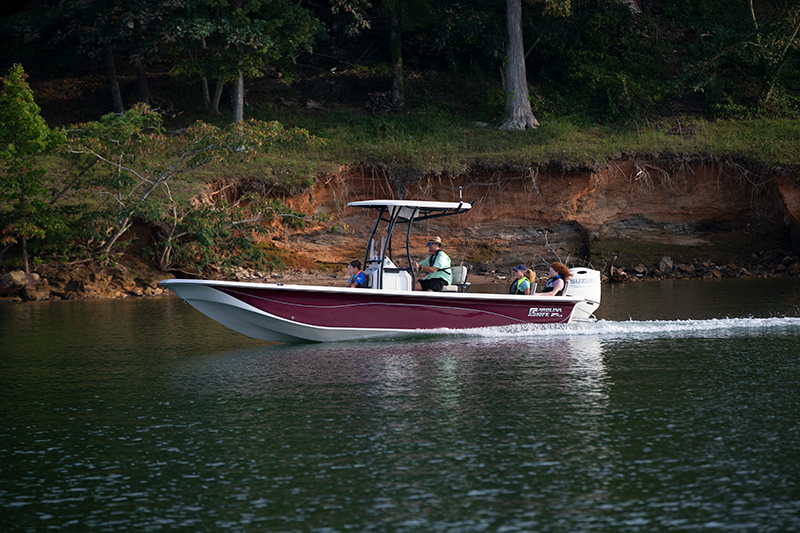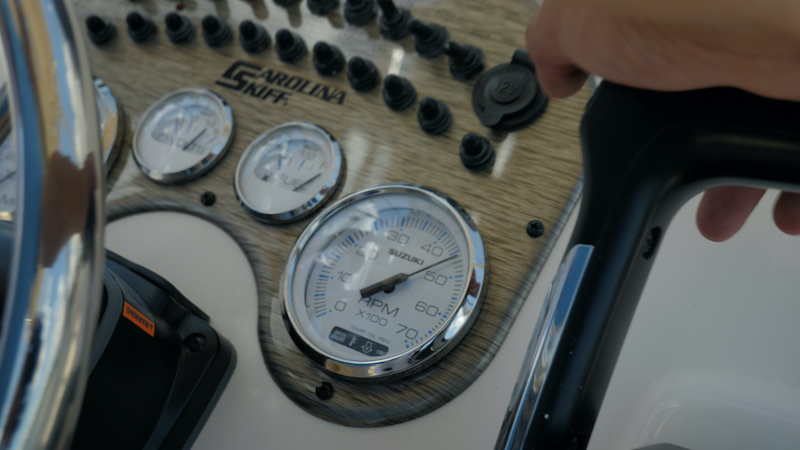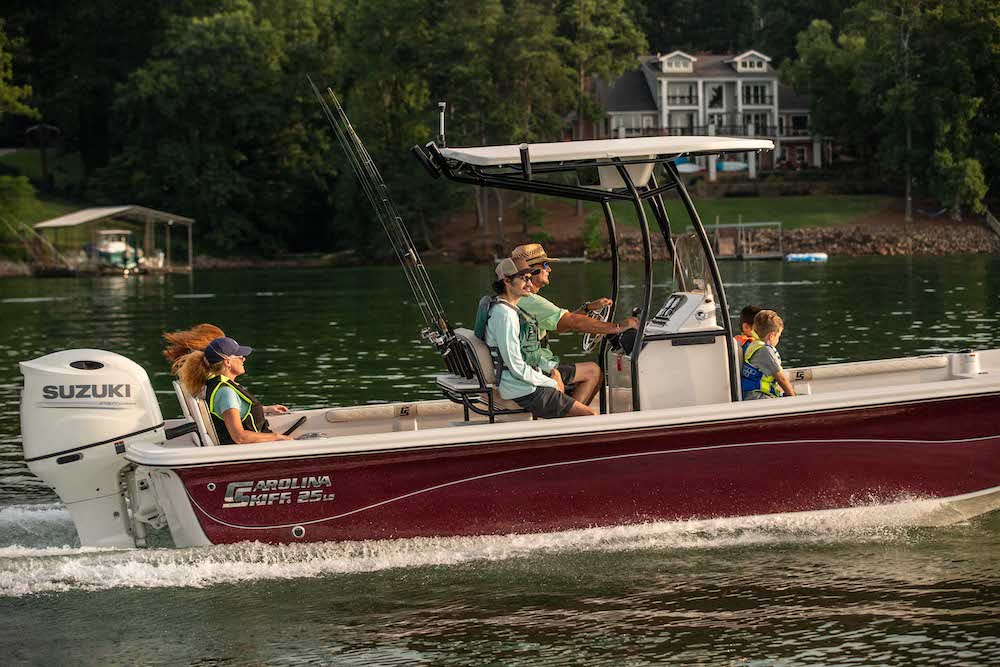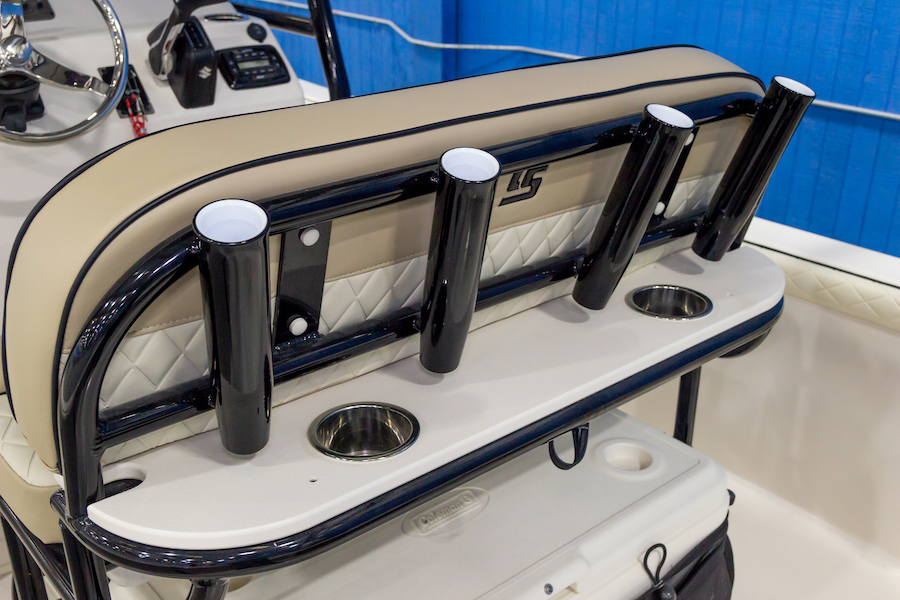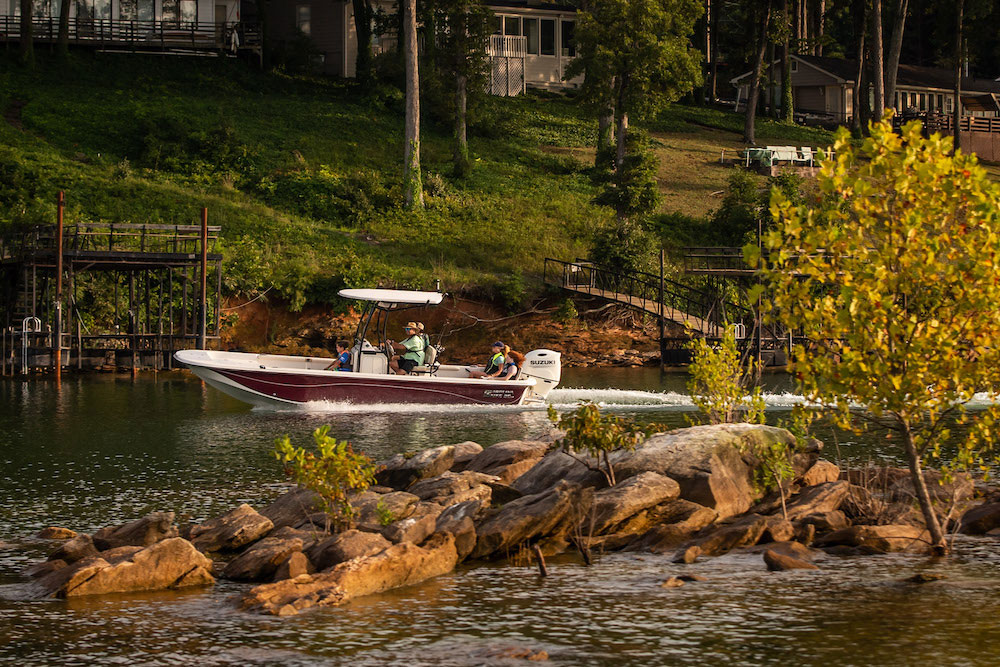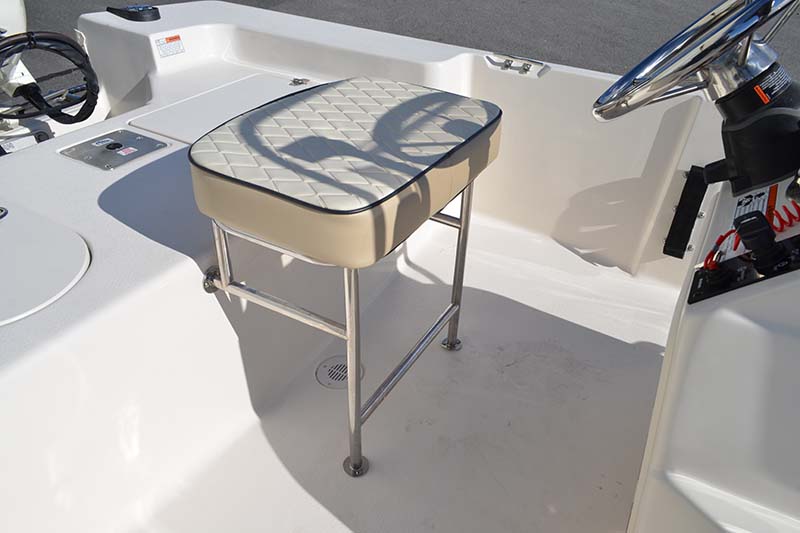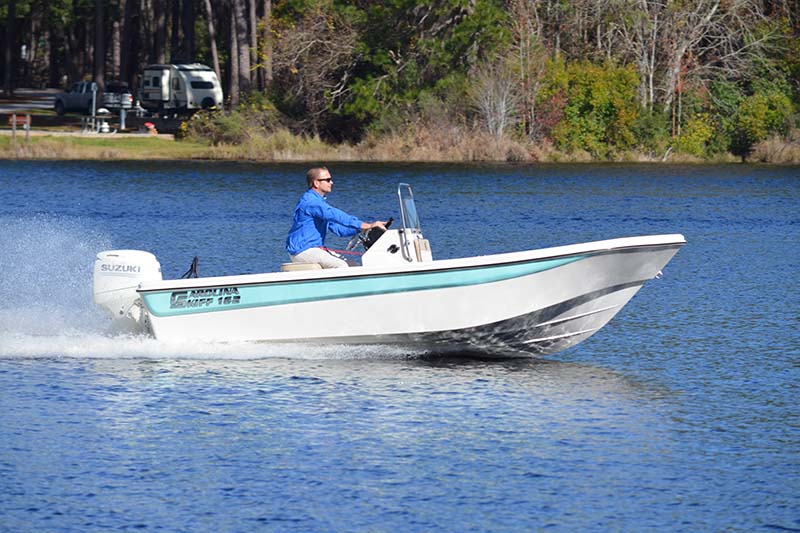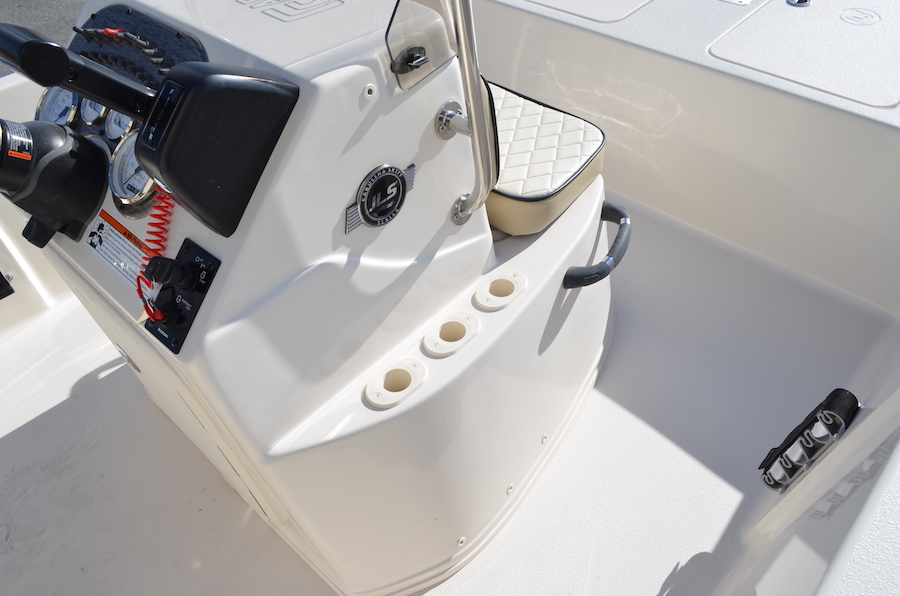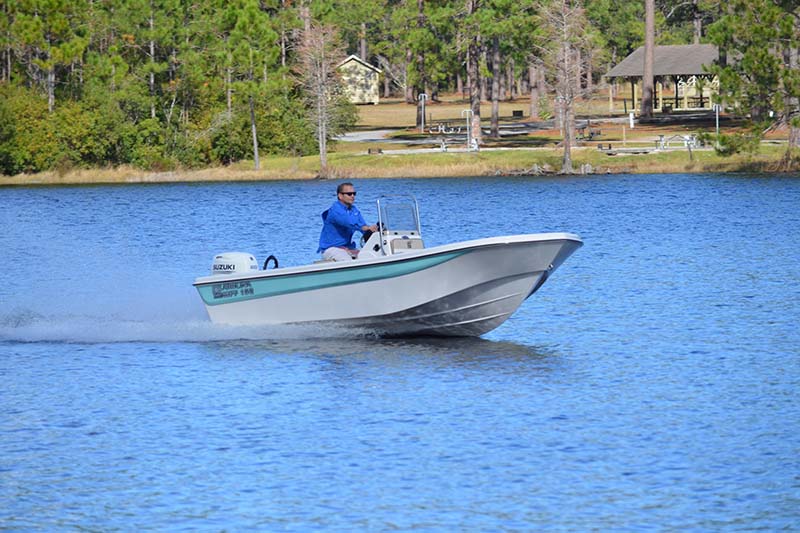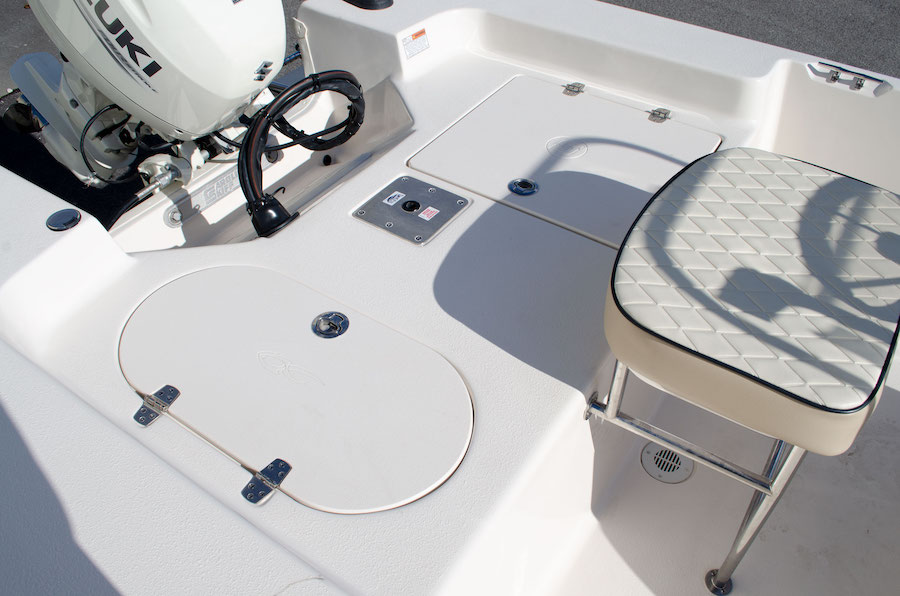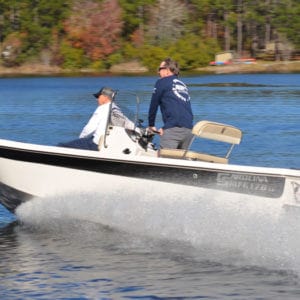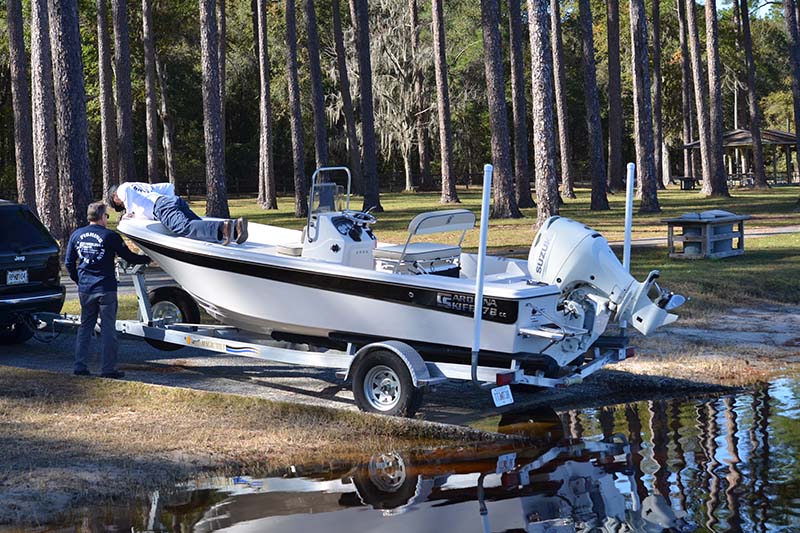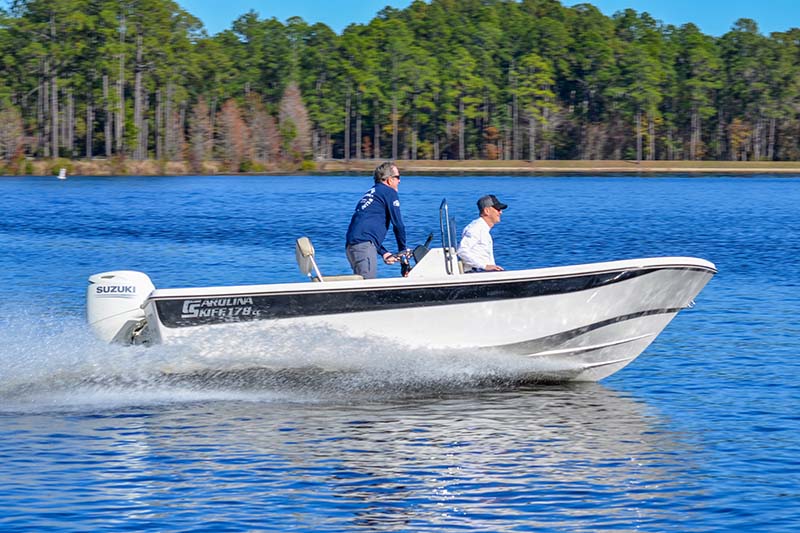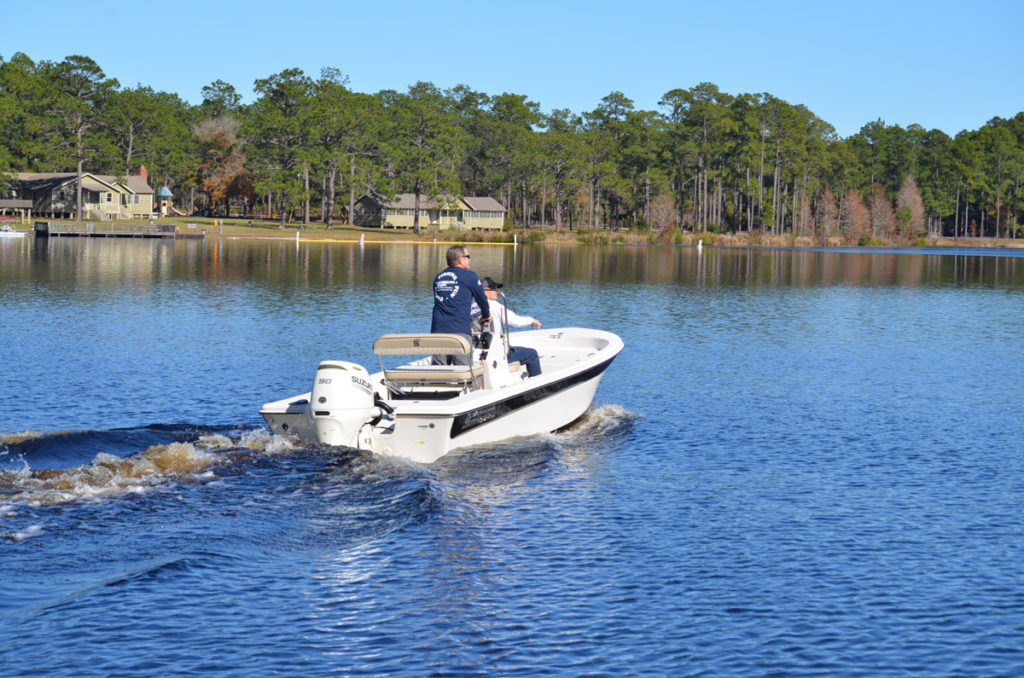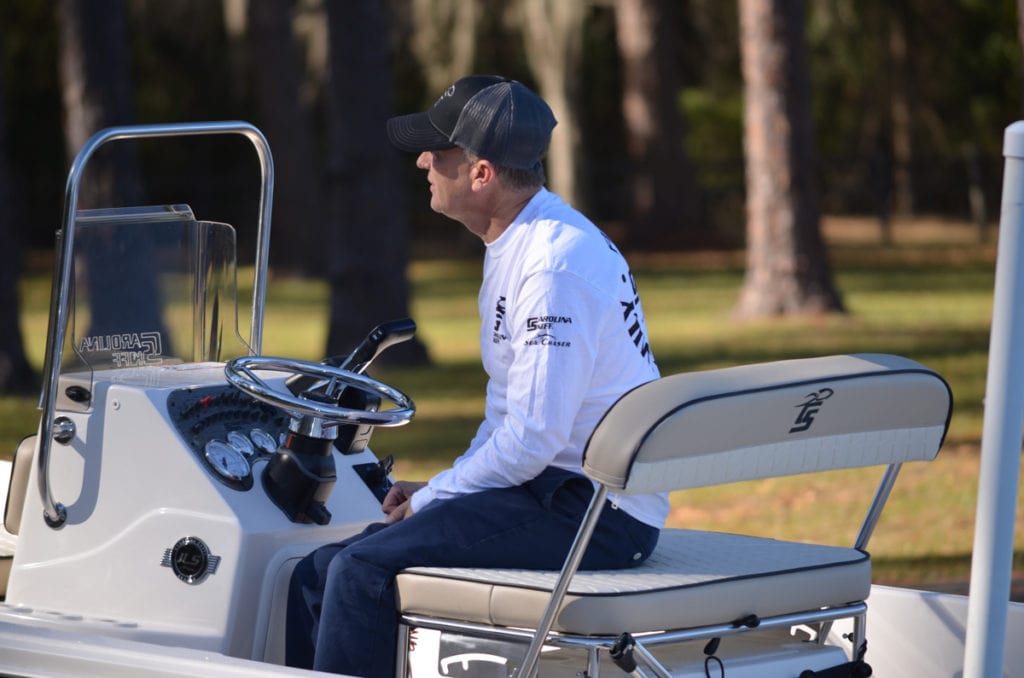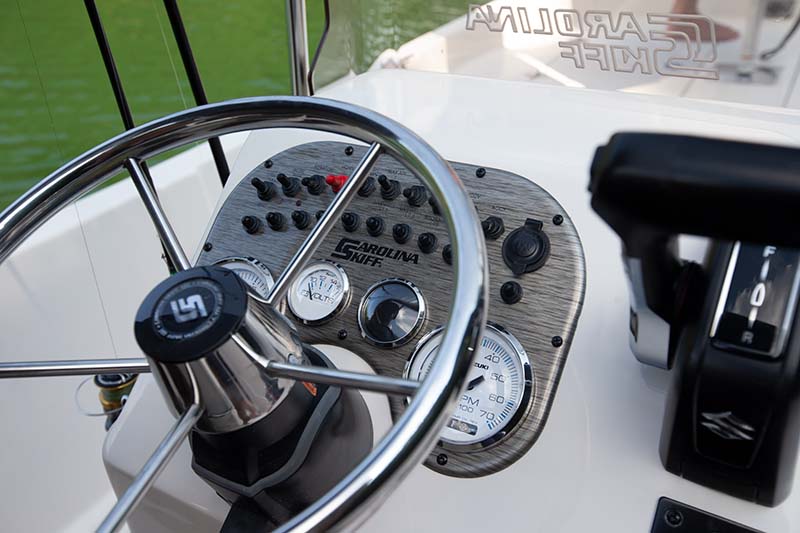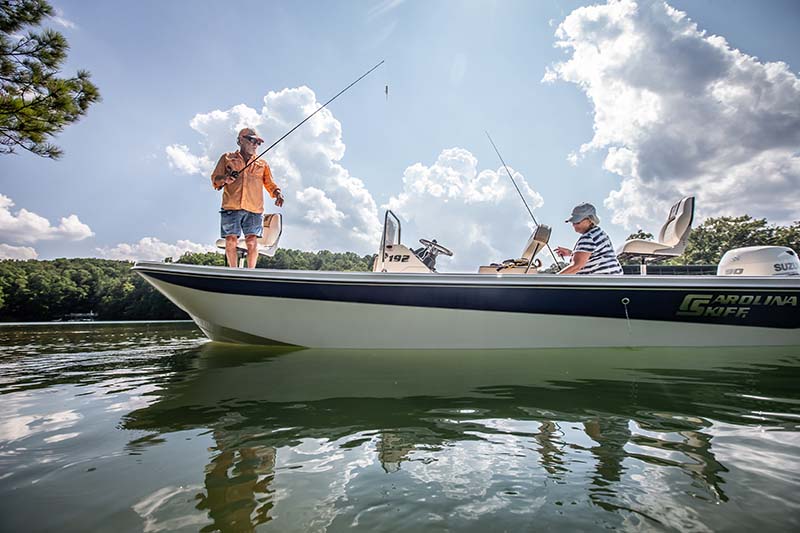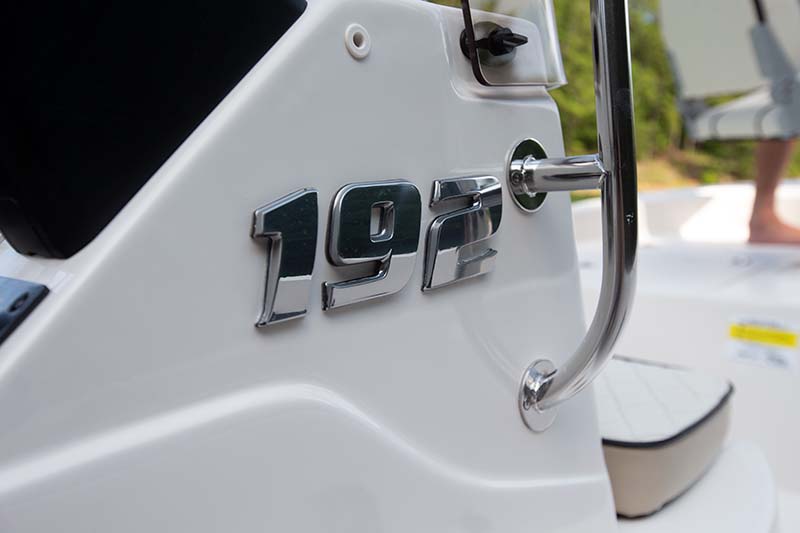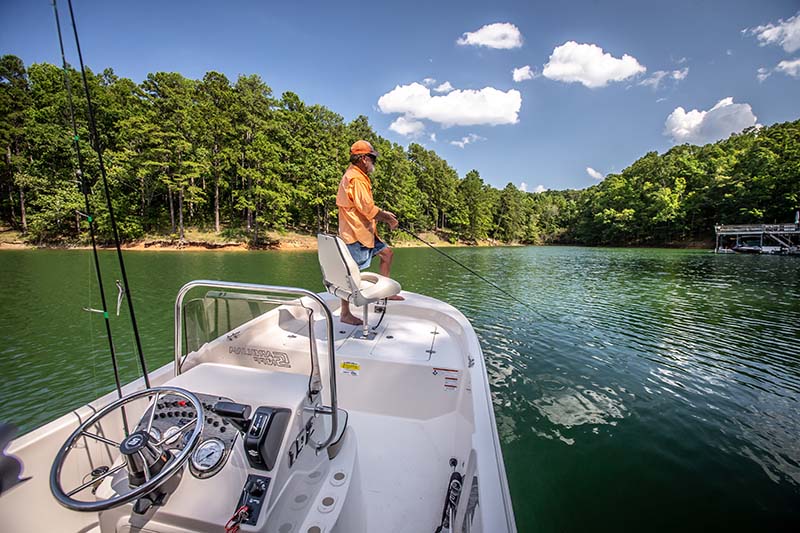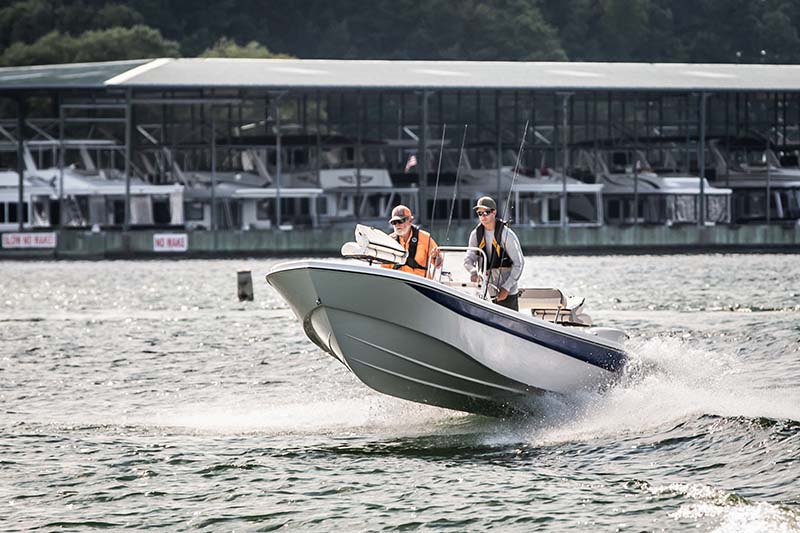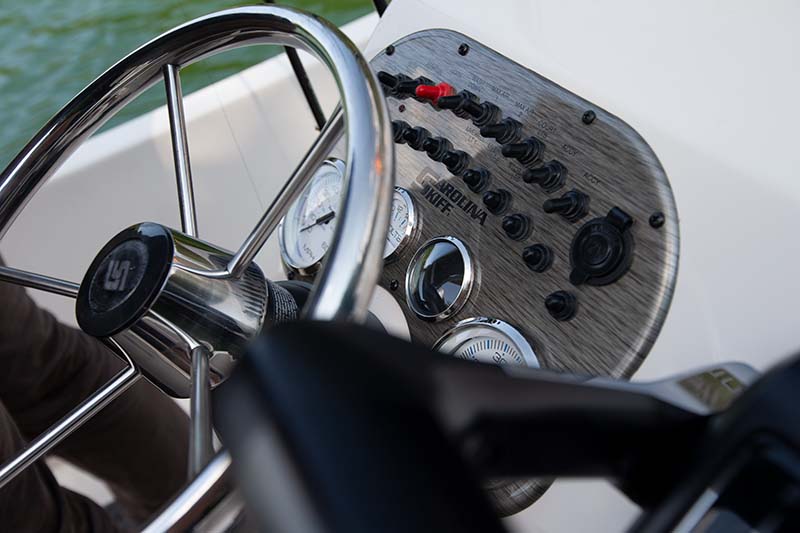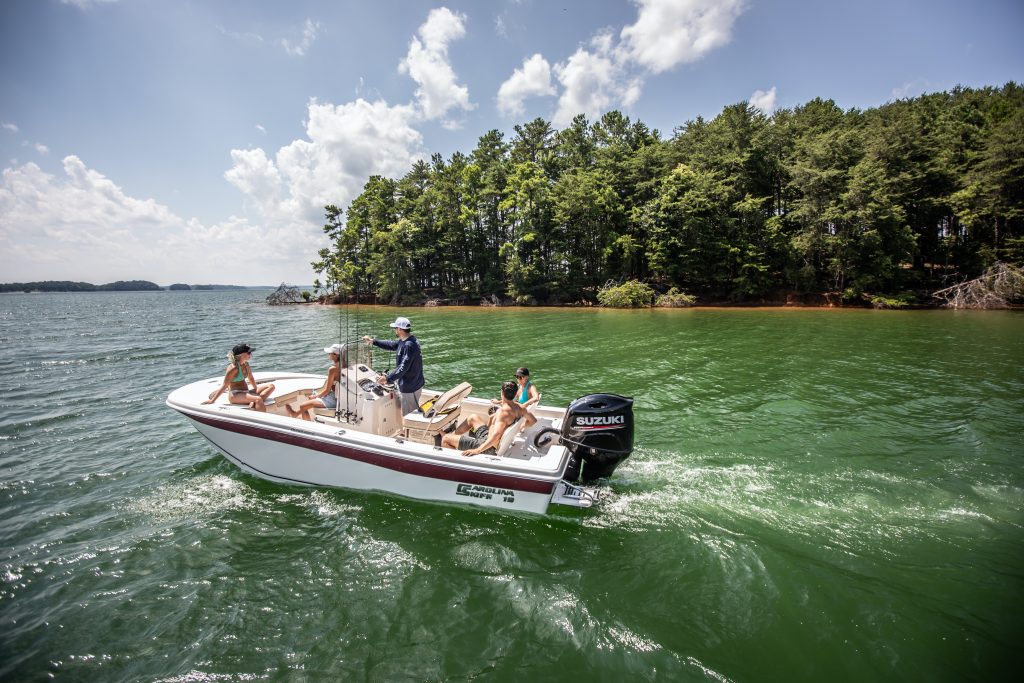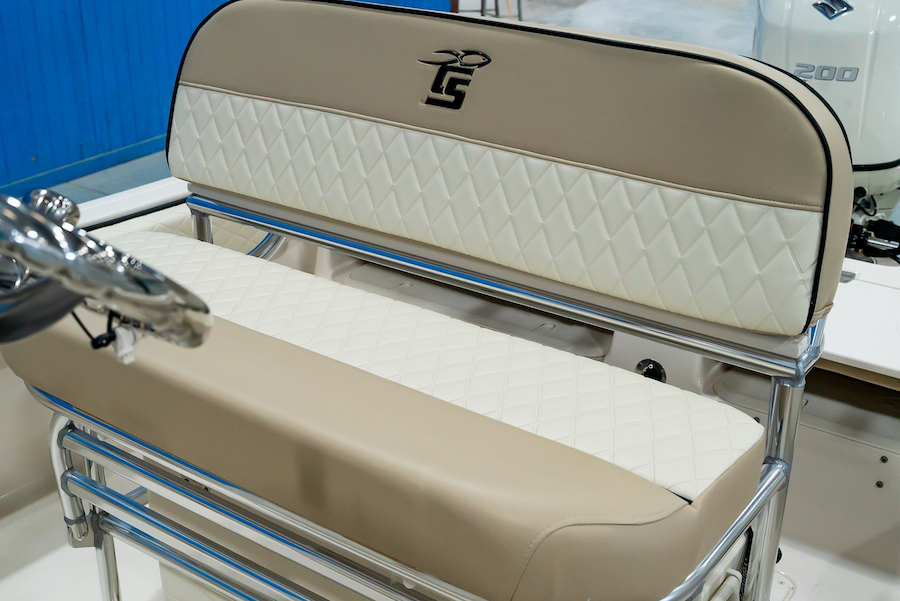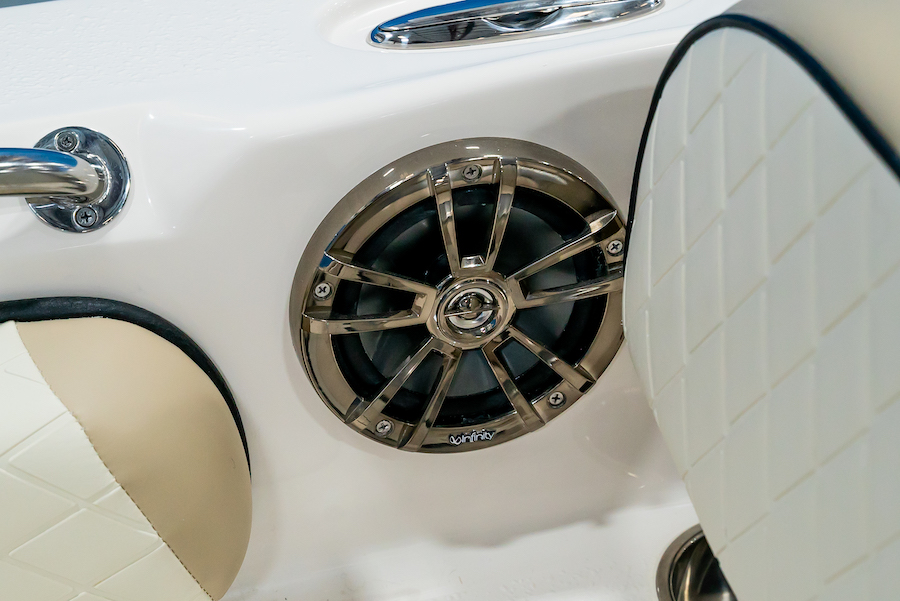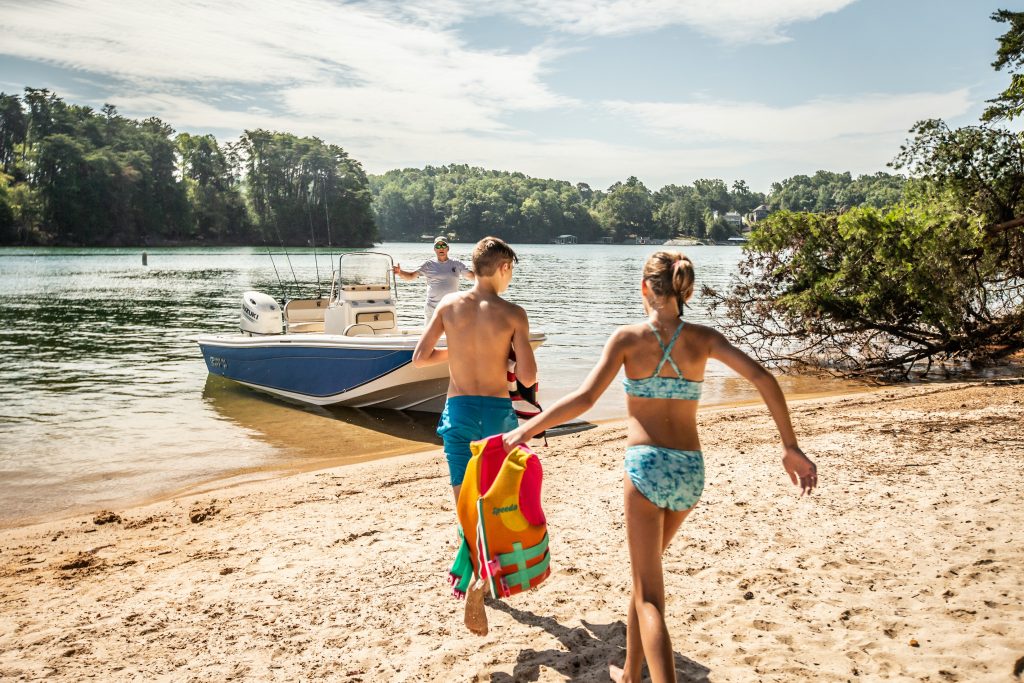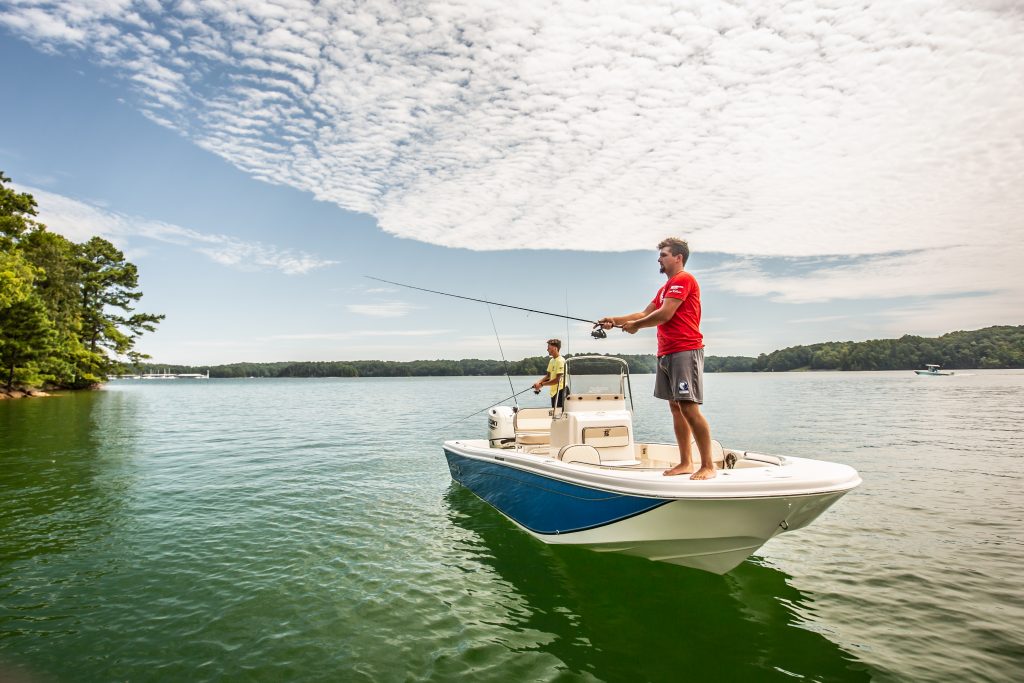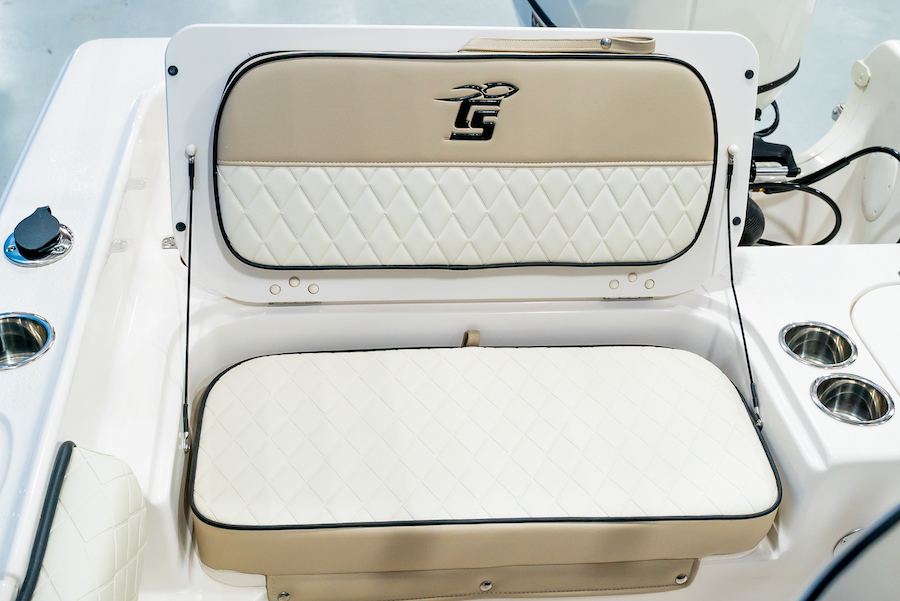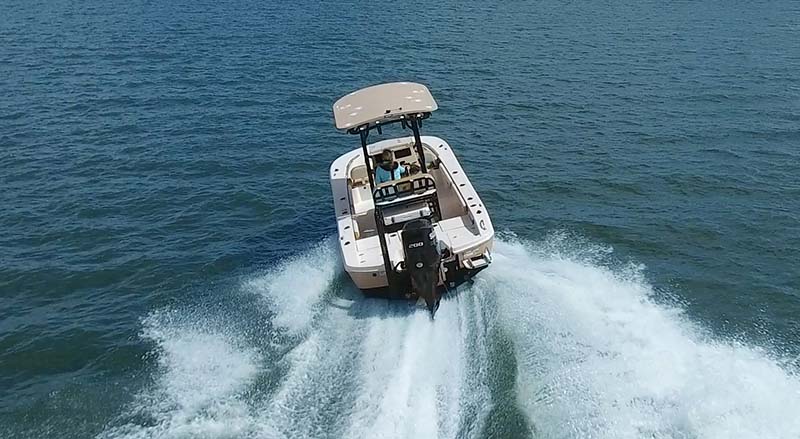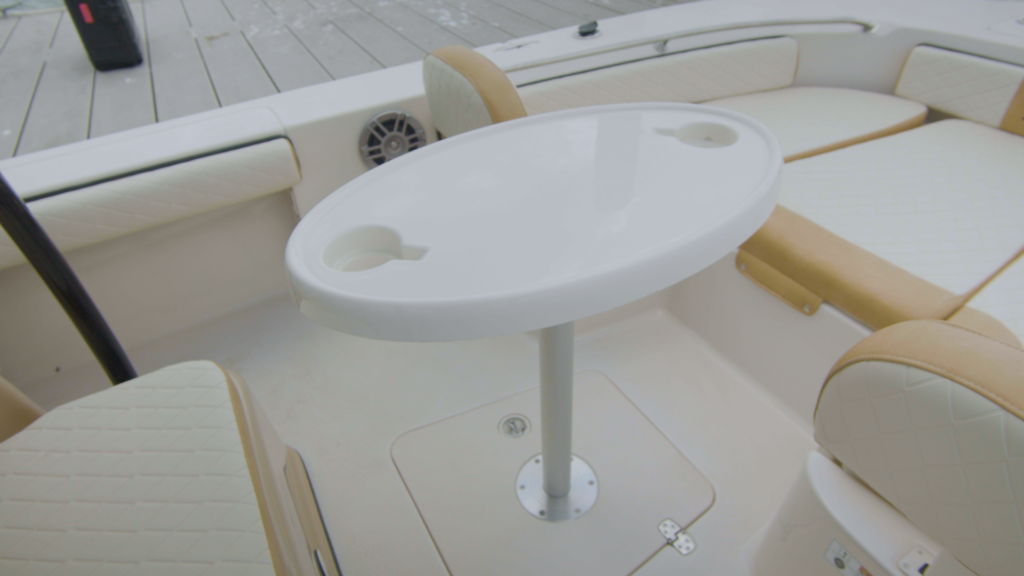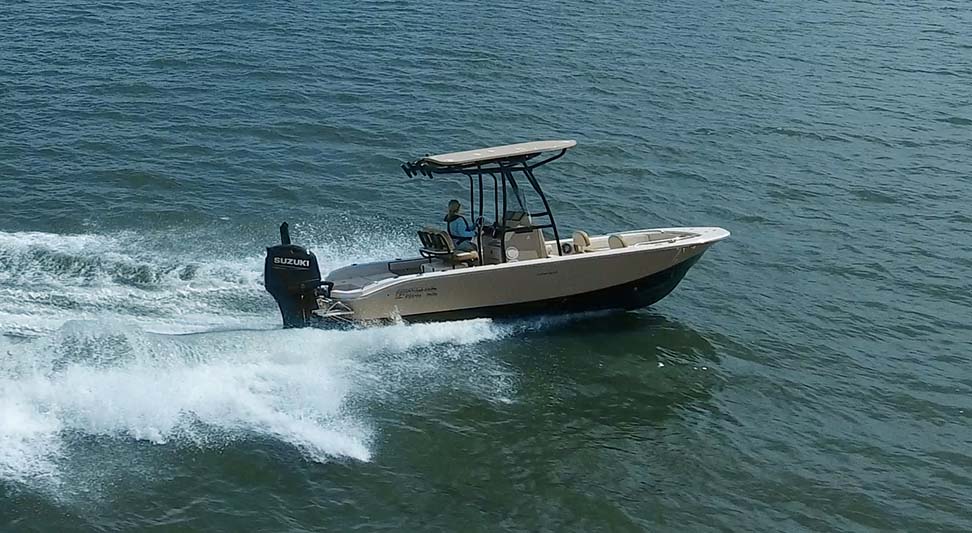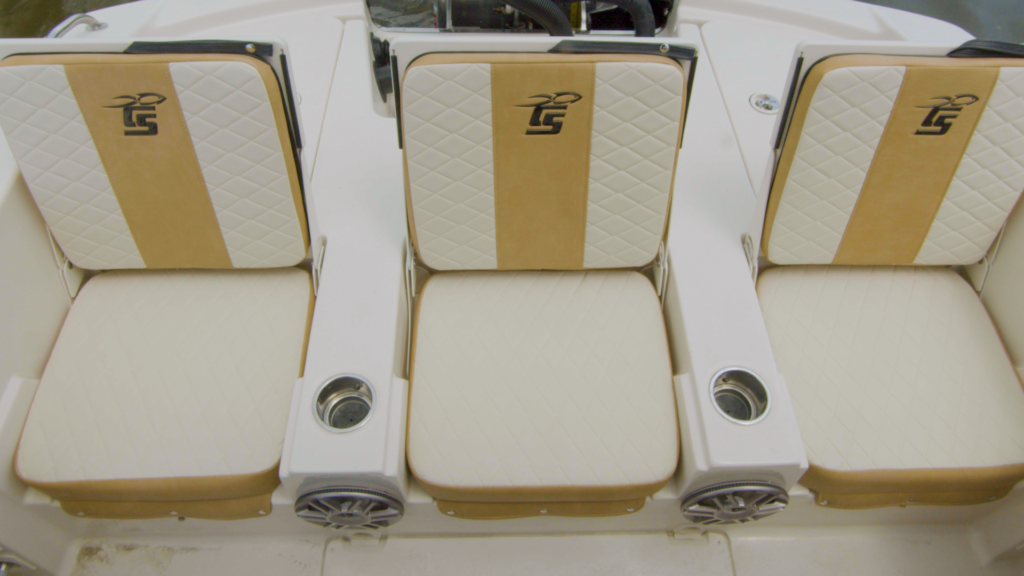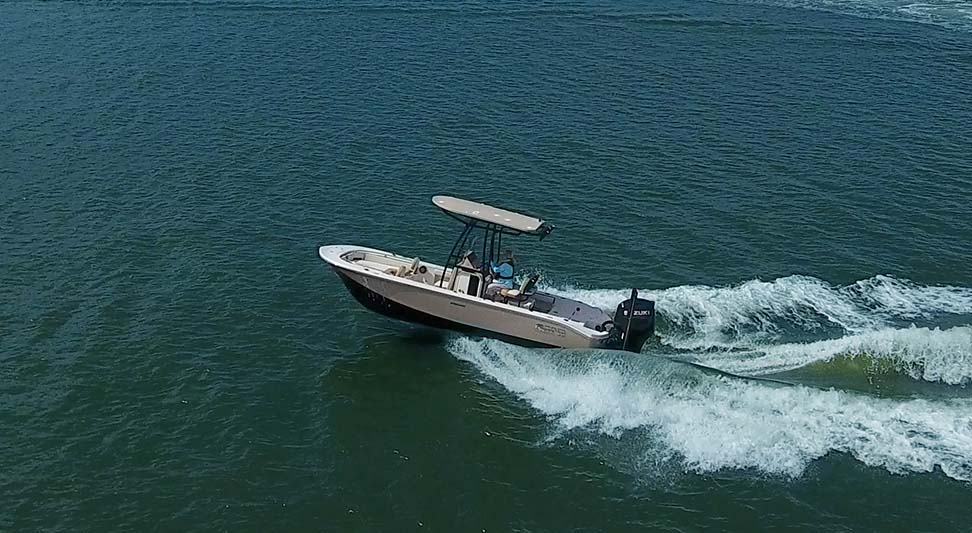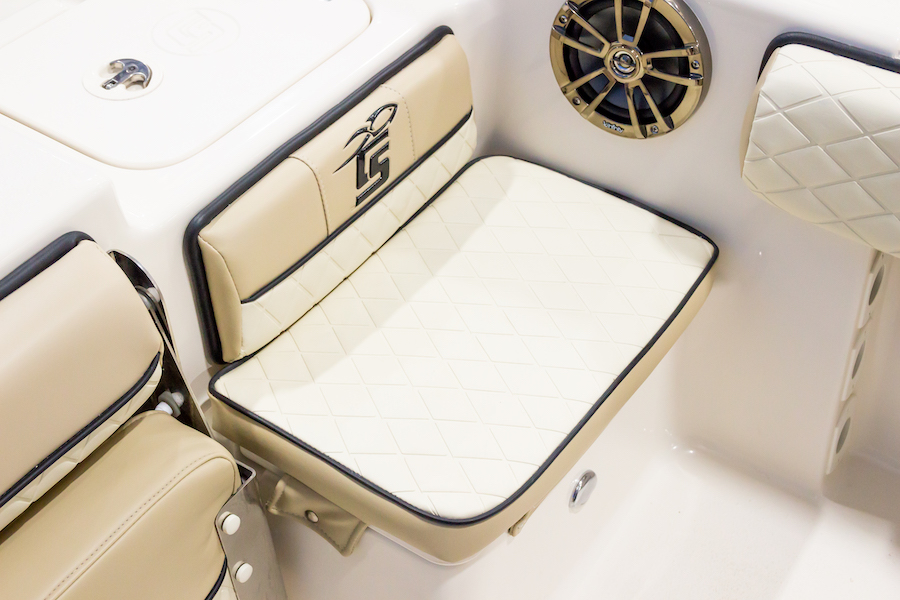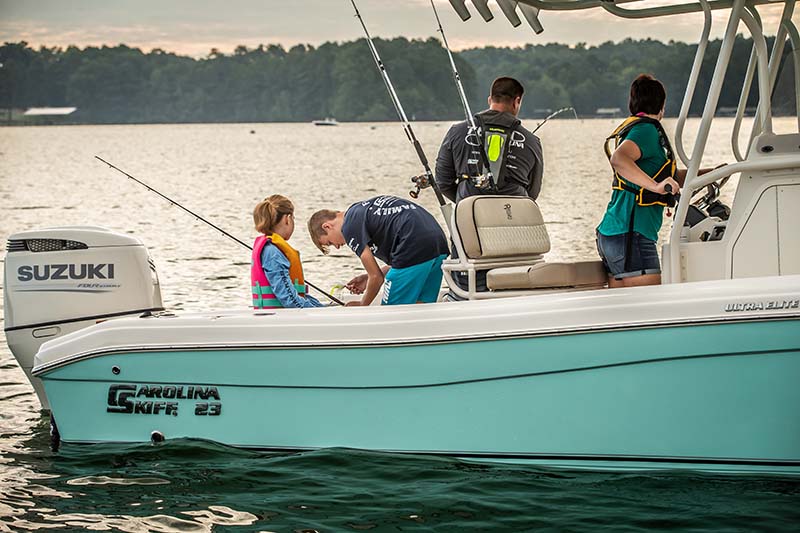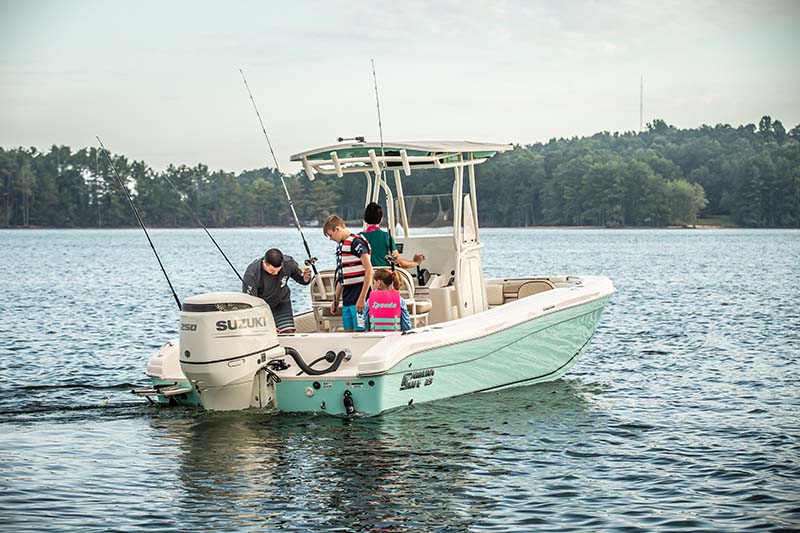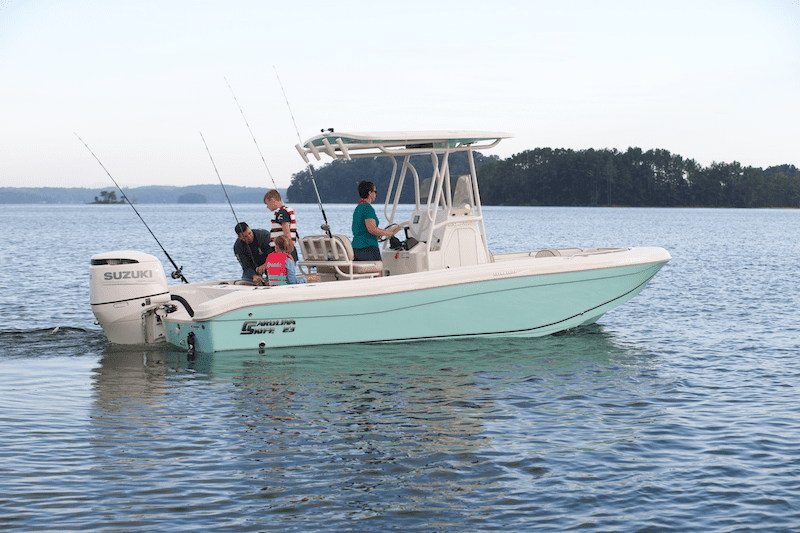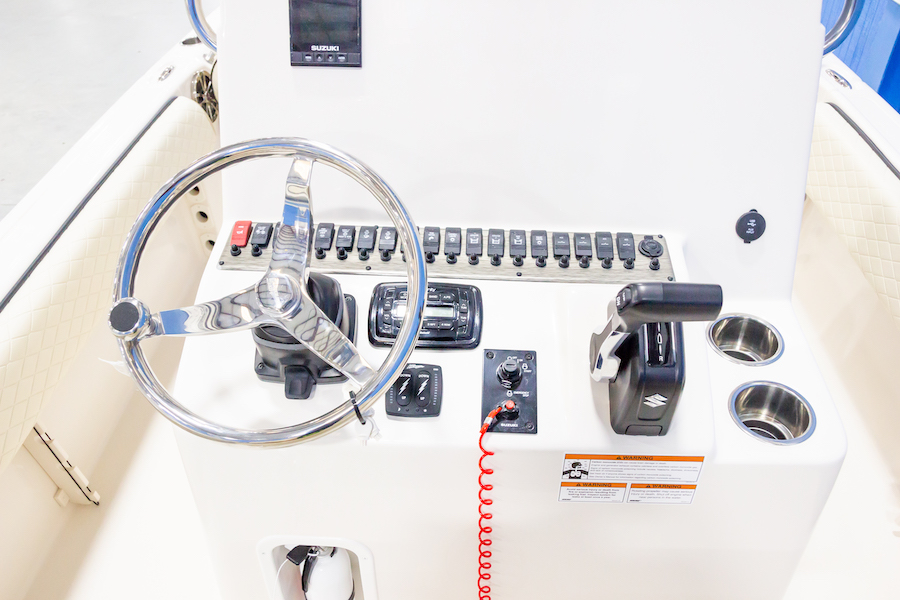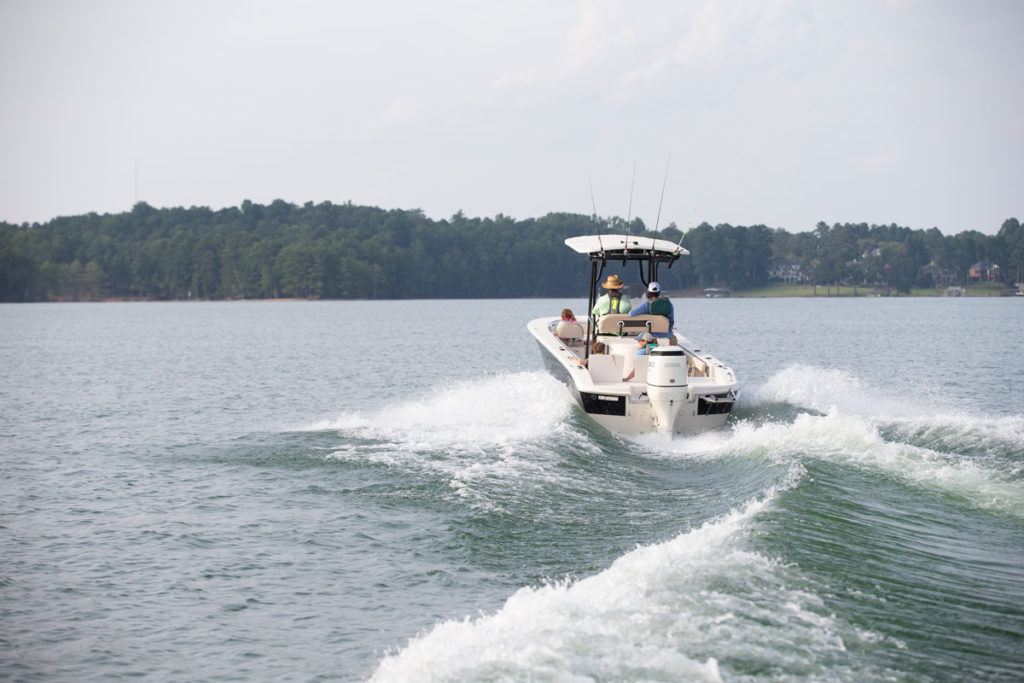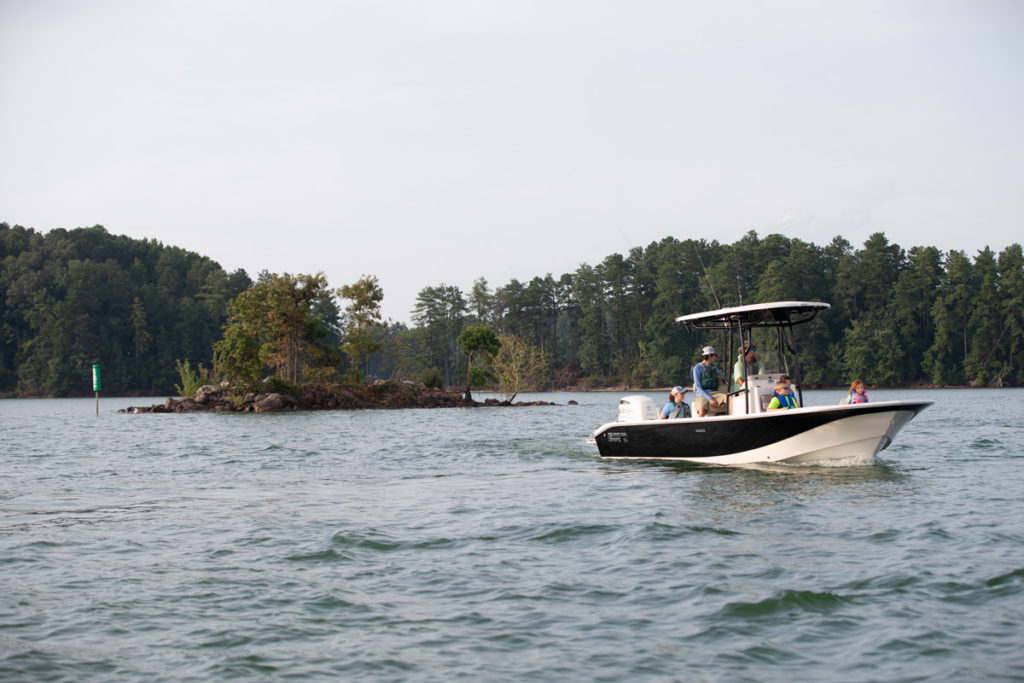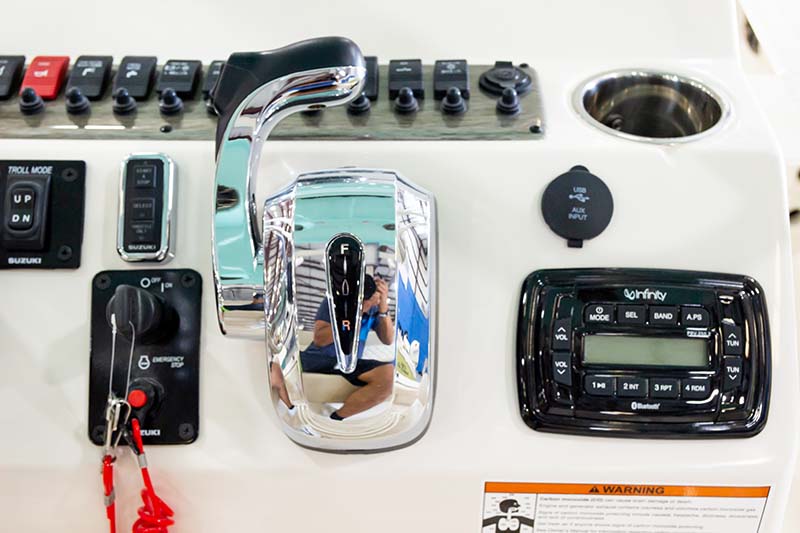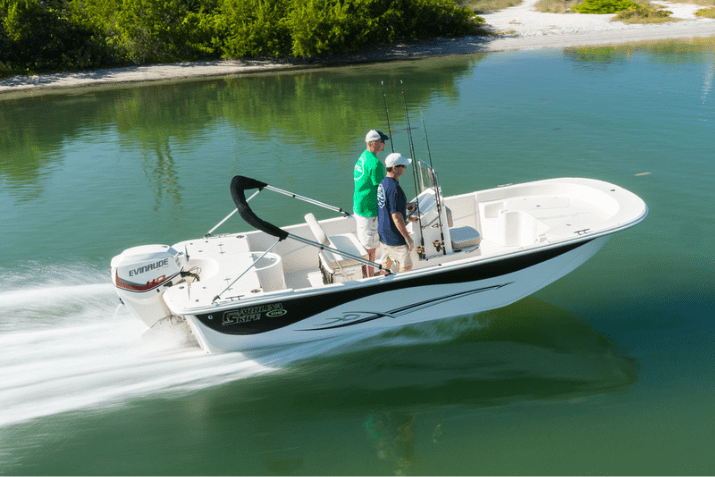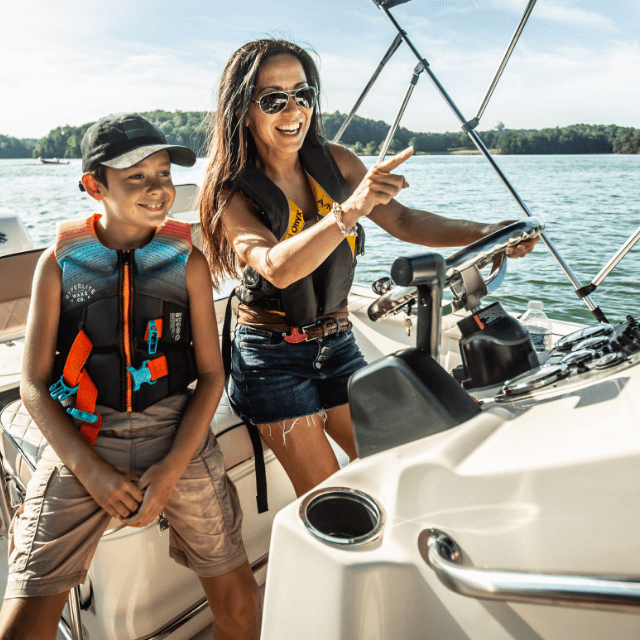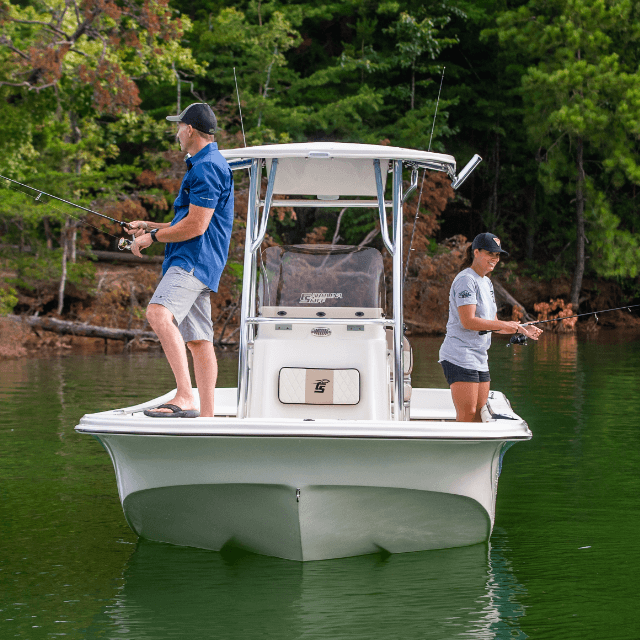Alabama-based research center Dauphin Island Sea Lab recently announced the addition of two Carolina Skiff boats to its 15-vessel research fleet
Dauphin Island Sea Lab is a marine education and research center located on Dauphin Island, which is at the entrance to Mobile Bay about three miles off the Alabama coast. The lab is part of the Marine Environmental Sciences Consortium, a group 23 universities who work together to provide excellent research and teaching in marine science. The lab offers a large summer undergraduate research program, graduate classes each fall and spring and educational opportunities for K-12 students. The lab also hosts a world-class group of faculty, visiting scientists and other researchers.
Dr. Lee Smee is Chair of University Programs and Senior Marine Scientist at Dauphin Island Sea Lab. He works with a wealth of undergraduate and graduate students and college faculty to facilitate the lab’s research and educational programs. The lab also offers learning opportunities for grade school and high school students through summer camps, field trips and other experiences. Dauphin Island Sea Lab also features a large aquarium that hosts about 80,000 guests each year.
“We believe being truly immersed in marine science is the best way to learn,” said Smee.
One of the ways that students, faculty and researchers learn is to get out on the water, engaging in hands-on research and real-life, in-person learning. The lab has a fleet of more than a dozen research vessels that are used for everything from dolphin sighting cruises to intense, data-gathering research outings.
“We do a wide variety of coastal work, looking at anything from weather, currents and oceanography to water pH, toxicology and harmful algae blooms. We study aquaculture and habitat restoration as well as gather all kinds of data that we provide to the state that supports their monitoring efforts,” said Smee.
About half of the lab’s 15 vessel research fleet are Carolina Skiff boats. Smee has a Carolina Skiff boat of his own which he uses for his research group. Smee said Carolina Skiff boats are well suited to the varied needs of the lab and are both reliable and comfortable.
The lab recently obtained two 25-foot Carolina Skiff boats to be used as research vessels and named one “The Flounder” and the other “Claire B”. The “Claire B” purchase was funded in part by private donors and a grant from Alabama Power Foundation.
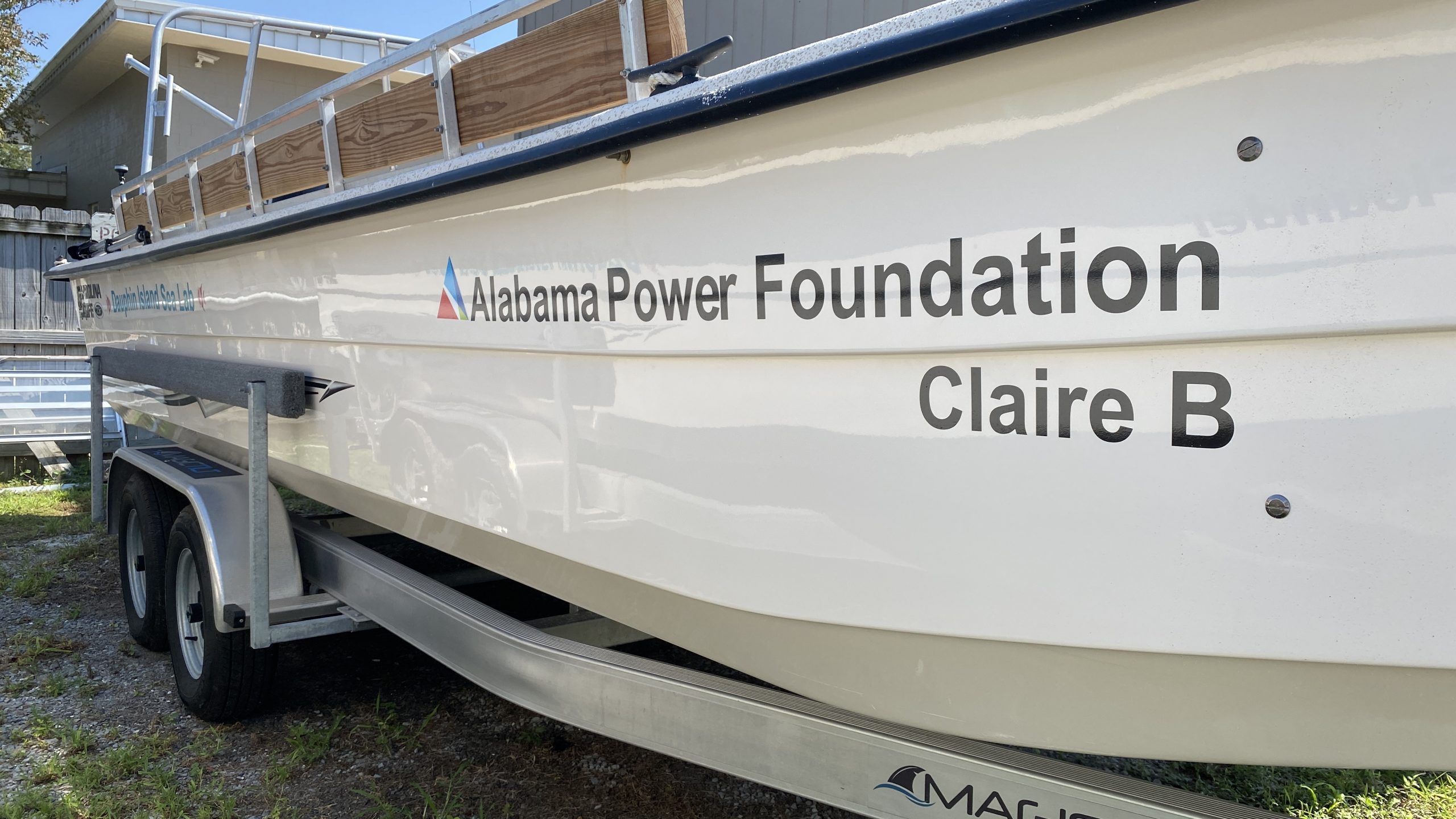
“Our Carolina Skiff boats are just outstanding,” said Smee. “You can put a whole class on them, go and pull a trawl, look at marine habitats, observe dolphins and so much more. The boats are roomy, incredibly stable and simply great for research purposes.”
Many of the lab’s boats are used year-round for a variety of university research, but boats are also used for the lab’s grade school and high school discovery programs.
“We have a really large boat that can hold 45 people, but weather is not always conducive to taking that boat out on the water. Sometimes it’s just too windy and rough. When our big boat cannot go out, any of us can drive one of our smaller Carolina Skiff boats and take the kids out into safe and protected areas on the water,” added Smee. “One of our boats is specifically designed for this, featuring plenty of bench seating and a table in the middle. After we gather fish and crabs and things with the trawl, we can dump what we gather on the table for kids to investigate. It’s really great.”
Smee added that Carolina Skiff boats are outstanding for work in estuaries, as well.
“For our work in the estuaries, our Carolina Skiff boats are hard to beat,” he said. “They have a big and stable platform. You feel good about sending people out on it knowing that it’s a safe boat, but it’s also got a great working deck and platform. These boats hold a ton of people and a ton of gear, but still run shallow.”
Smee added that Carolina Skiff boats have allowed students and researchers to get up close and personal to observe a variety of marine life in the area and collect meaningful data. Carolina Skiff boats have a shallow depth that allows for easy and safe access to almost any marine setting.
“We just had a sperm whale in the bay. We’re studying oyster aquaculture. We’re doing a lot of basic ecology work. We’ve got people that study biological oceanography. We’re looking at water quality in the bay and how climate change is effecting that. For example, we know that oysters make their shell thicker and harder when predators are around. We’re trying to see if an aquaculture farmer can use that information in meaningful ways,” he said. “There’s always something more we can learn.”
The Dauphin Island Sea Lab research vessel fleet is funded by both private donations as well as through grants and other funds secured through the Dauphin Island Sea Lab Foundation. Smee said that Carolina Skiff boats are an important part of the lab’s research fleet, allowing many to access Alabama’s diverse coastal waterways and marine habitats.
“We know that the hull of a Carolina Skiff boat is going to last a very long time. Some of these boats have been here more than 20 years,” he said. “Sure, we’ve replaced engines or repaired electronics, but these boats serve us well and allow us to continue research and use them for educational purposes too. These are good, dependable, hard-working boats.”
At Carolina Skiff, building one of the best quality boats for a great price has always been our goal. Whether you’re looking for a pleasure boat, fishing boat, runabout or commercial/work boat, Carolina Skiff delivers the most in value, quality and style. Find a Carolina Skiff dealer near you today or visit https://carolinaskiff.com/ to learn more.
